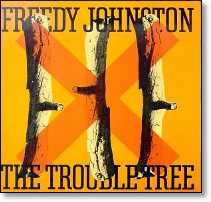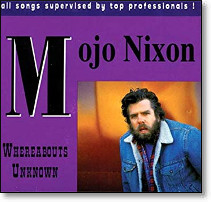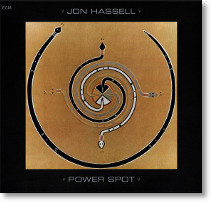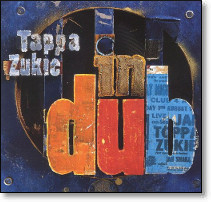Latest
2024
Dec
Nov
Oct
Sep
Aug
Jul
Jun
May
Apr
Mar
Feb
Jan
2023
Dec
Nov
Oct
Sep
Aug
Jul
Jun
May
Apr
Mar
Feb
Jan
2022
Dec
Nov
Oct
Sep
Aug
Jul
Jun
May
Apr
Mar
Feb
Jan
2021
Dec
Nov
Oct
Sep
Aug
Jul
Jun
May
Apr
Mar
Feb
Jan
2020
Dec
Nov
Oct
Sep
Aug
Jul
Jun
May
Apr
Mar
Feb
Jan
2019
Dec
Nov
Oct
Sep
Aug
Jul
Jun
May
Apr
Mar
Feb
Jan
2018
Dec
Nov
Oct
Sep
Aug
Jul
Jun
May
Apr
Mar
Feb
Jan
2017
Dec
Nov
Oct
Sep
Aug
Jul
Jun
May
Apr
Mar
Feb
Jan
2016
Dec
Nov
Oct
Sep
Aug
Jul
Jun
May
Apr
Mar
Feb
Jan
2015
Dec
Nov
Oct
Sep
Aug
Jul
Jun
May
Apr
Mar
Feb
Jan
2014
Dec
Nov
Oct
Sep
Aug
Jul
Jun
May
Apr
Mar
Feb
Jan
2013
Dec
Nov
Oct
Sep
Aug
Jul
Jun
May
Apr
Mar
Feb
Jan
2012
Dec
Nov
Oct
Sep
Aug
Jul
Jun
May
Apr
Mar
Feb
Jan
2011
Dec
Nov
Oct
Sep
Aug
Jul
Jun
May
Apr
Mar
Feb
Jan
2010
Dec
Nov
Oct
Sep
Aug
Jul
Jun
May
Apr
Mar
Feb
Jan
2009
Dec
Nov
Oct
Sep
Aug
Jul
Jun
May
Apr
Mar
Feb
Jan
2008
Dec
Nov
Oct
Sep
Aug
Jul
Jun
May
Apr
Mar
Feb
Jan
2007
Dec
Nov
Oct
Sep
Aug
Jul
Jun
May
Apr
Mar
Feb
Jan
2006
Dec
Nov
Oct
Sep
Aug
Jul
Jun
May
Apr
Mar
Feb
Jan
2005
Dec
Nov
Oct
Sep
Aug
Jul
Jun
May
Apr
Mar
Feb
Jan
2004
Dec
Nov
Oct
Sep
Aug
Jul
Jun
May
Apr
Mar
Feb
Jan
2003
Dec
Nov
Oct
Sep
Aug
Jul
Jun
May
Apr
Mar
Feb
Jan
2002
Dec
Nov
Oct
Sep
Aug
Jul
Jun
May
Apr
Mar
Feb
Jan
2001
Dec
Oct
Sep
Aug
Jul
Jun
May
Apr
Mar
Feb
Friday, August 31, 2018
Daily Log
From Greg Magarian, on Facebook:
This essay [Kelly Hayes: John McCain's Victims Are a Part of His Story] is spot on. After five days, the gushing of praise for McCain has hardened into an aggressive denial of this rich white right-winger's lust for war and his decades-long crusade against virtually every decent, beneficient public policy. He hurt countless people. Almost everything he believed was egregiously wrong. Like every Reaganite drone, all he really cared about was enriching the wealthy and protecting the powerful. His only notable talent was for self-promotion -- he fooled us into revering him, and now he's fooling us from beyond the grave.
When I looked at Hayes' piece, I noticed that the top "trending" piece at Huffpost was 7 of the Most Heartbreaking Moments From Joe Biden's Eulogy for John McCain. I didn't click on that one. The only one I could imagine is Biden getting up to deliver a eulogy in the first place, but I didn't really think my opinion of Biden is high enough for heartbreak.
Thursday, August 30, 2018
Streamnotes (August 2018)
Pick up text here.
Tuesday, August 28, 2018
Daily Log
Wrote this in a letter to Michael Tatum about possible genre schemes for re-organizing the non-jazz record reviews:
In my database schema, I have three files that I group into the Country A-list: country, bluegrass, and oldtime (pre-WWII country, including western swing). I'm inclined to merge them together. My main question here is whether to expand by picking up entries from folk (which is currently a mix of singer-songwriters, the Guthrie-Seeger tradition, the Fahey school, and several others) and/or country-ish rock bands/artists (ranging from those filed under Americana to the Allmans but probably not the Mekons). I suppose one could also make an argument for folding in UK Folk/Celtic, Cajun/Zydeco, and the tiny white fragment of Gospel. Core 3 files have 1511 albums; I'd guess that the possible expansions might add up to 2500 albums.
My rock is pretty much AMG's "Rock, Pop & Soul" (7215 albums), with rap (1161) and electronica (741) split out. Obvious question here is whether to split soul/r&b out, which would then raise the question of combining early with blues and late with hip-hop. I initially resisted the racial division because early rock was defiantly integrated, but post-1980 feels different.
Napster splits this up between pop, rock, and alternative, with oldies and metal far off to the side. I've never been very comfortable with alt/indie labels. I was more tempted to break out singer-songwriter, but it's hard to tack down the margins there. Metal is pretty clearly in its own ghetto, but I cover so little of it I don't care to advertise the point.
Electronica is another group which can be expanded or contracted.
I do think that World should be broken up into gross regions, although one might also divide the Americas by language (English, Spanish, Portuguese) and tie them to corresponding parts of Europe. I'm tempted to split Jewish/Klezmer up between American (folk), European (folk), and Middle Eastern regions.
In the jazz guides, I was tempted to split vocalists out but didn't do that. I'm treating pre-rock pop vocalists as jazz, but that doesn't mean they should be excluded here. Obviously, some artists are both jazz and non-jazz (Ray Charles, Dr. John, etc.).
For a book organization, I think there are two cardinal rules: the reader should be able to intuit the right section to look up any major artist (at most with two tries). And once you're in a section, you should mostly be finding similar/related artists.
Monday, August 27, 2018
Music Week
 |
 |
 |
 |
 |
 |
Music: current count 30216 [30165] rated (+51), 275 [310] unrated (-35).
Running on a new server. I ordered the replacement from Hosting & Designs non Tuesday. Everything is kind of a blur now, but I think it was late Friday afternoon when I was finally able to log in and start configuring accounts and rebuilding websites. Unfortunately, we had a miscommunication on setting up the nameservers, so I didn't get DNS running properly until Saturday evening. I now recall that I made the same stupid error when we set up the initial server eight years ago. By Saturday night I had rebuilt four websites I had active copies of: hullworks.net, tomhull.com, carolcooper.org, and caroladibbell.com (the latter lost some pages that had been managed by WordPress).
I'm still digesting a lot of server details -- I'm getting a lot more status email than I ever did before. The first message, even before I got my login directions, was a notice that hackers tried to login and have been blocked. I expected the Russians would chomp at the bit, but the first blocked address was from China, the second from the US, then half a dozen other countries (Italy, Netherlands, Poland, Colombia, France, Thailand) before Russia showed up. I've been saving those notices, and have 30-40 blocked IPs so far. Nothing very troubling so far, but I can't say as I understand it all.
One thing that happened last time was that some of my website software broke because the security setup blocked some of the PHP functions I was using. So far that does not appear to have happened. Still, the server has moved from PHP 5 to PHP 7, and that transition broke a lot of things when I changed my local server several months back. I'd appreciate it if you'd be on the outlook for breakage and let me know so I can get it fixed. This particular server change does not affect robertchristgau.com, but I'm still mid-stream in dealing with similar issues there.
I still have four more websites to set up, but three are basically empty stubs, and I'm waiting on some configuration info for the fourth. So, I figured those could wait a bit, and like God, I decided to take a day of rest. Well, of doing some of my own writing. I came up with Weekend Roundup, but didn't actually get it done until late afternoon Monday. Then, of course, there's this. After which, I'll have to do my first partial update of my website. Shouldn't be a problem, but I've been running into a lot of Murphy lately.
My plan to start writing short, single-topic news/politics posts got put on hold with the server crash. The planned outlet is one of the WordPress websites I haven't set up yet. Still seems like the right thing to do, especially after juggling a half-dozen topics in Weekend Roundup. I wound up rather flummoxed by the Korea piece, which ran on through 16 paragraphs, leaving me thinking: it was too long, it didn't cover everything that needed to be covered, and it didn't come to a real conclusion. I have an idea for a simpler piece: a simple op-ed, on "Trump should start by ending the Korean War now." Then save the stuff on how American mental attitudes lead us to such stupid and arrogant policies.
Another piece might be on McCain. I said pretty much what I wanted to say, but it doesn't feel like I made the points in proper order. And I added a couple of points today that could have been woven into the main piece. On the other hand, I probably understated the extent to which McCain has been a media creation, and what this says both about us and the media.
Those two issues overwhelmed the week, but another half-dozen items deserve deeper, more focused treatment. I also have thoughts on Masha Gessen's book, The Future Is History: How Totalitarianism Reclaimed Russia: not so much about the political system in Russia as the overall mindset which supports Putin, and how common that mindset is even in the United States. I'm reminded of much here, ranging from the classic studies by Arendt, Adorno, and Fromm (which Gessen cites) to Chris Hedges' still-important American Fascists: The Christian Right and the War on America (2012). Much to write about there.
Not much to say about the music below. The new jazz queue had shrunk to almost nothing a couple weeks ago. It's back up to 20 records now, but most of them have September-October release dates, so they didn't seem very urgent. August is relatively slow for new releases. Several weeks ago I made an effort to catch up with many of the 2018 releases that showed up on mid-year lists, so I doubted more research now would yield much. But also, a couple weeks ago I started streaming records I have long listed as U (unrated) in my database. Some were old LPs I had long ago but never jotted down a grade for. Most were used CDs I bought at closeout sales c. 2000-2004, when I was still buying a lot of CDs on spec, before I started getting all the promos I could handle. And some were promos I received but didn't find time to get to (mostly non-jazz from 2006-07; pending counts from 2005-17 are: 6, 20, 14, 6, 4, 8, 8, 2, 1, 0, 1, 0, 2). My unrated list peaked over 900, but I've been slowly knocking it down for many years now. I took a big chunk out of it last week, dropping under 300 for the first time since I've been counting, winding up at 275.
Early in the week I worked off the database rock files. Later on I just pulled all the unrateds out regardless of where they came from. I also started collecting a list of Christgau A-list records I hadn't heard (or at least graded), and occasionally tried something there. Three of this week's six A- records came from Christgau's A-list (Amy Allison's No Frills Friend, Chic's Real People, and Paul Pena). Two came from my unrated CDs (Amédé Ardoin, Art Neville). The other Amy Allison record I just picked up when I was in the neighborhood.
I'll probably continue the tactic another week or so, but at this point half of what I look up isn't on Napster. On the other hand, I do presumably have physical copies of these records, somewhere, and I've started to find and play some (Art Neville was one). On the other hand, I'm likely to have a lot of distractions the next couple of weeks. The new server and the Christgau website still need a lot of work. I'm trying to wrap up one last pass through the Notebook, this time to collect all of the non-jazz reviews and most of the non-review scraps I've written on music. The former I hope to hand over to Michael Tatum, in the hopes that he can fix my mistakes, flesh out the many places where I'm too cryptic (or evasive), and fill in the numerous gaps. I doubt the latter has any value as a book, but it should make it easier to find scraps that can be used elsewhere. I'm currently in 2009, so about half of the way through. When I'm done, I will have hacked the notebook into nine volumes, ranging from 800 to 1,800 pages each -- should run close to 15,000 pages in total. It's most of what I have to show for nearly two decades of ranting and raving "on the web."
August ends on Friday, so if nothing major breaks I'll post a Streamnotes by then. Currently the draft file includes a very low 32 new records, 3 recent compilations, 137 old records, and 2 grade changes, so 173 total records. That's a pretty big month -- I should check whether I've ever topped it. (Let's see: the most ever for a column was 206 on November 8, 2009, but that covered 41 days after September 28; the most on a monthly schedule was 185 for November, 2013, followed by 179 for September, 2015. The most so far this year was 165 in February, followed by 163 in July and 157 in January. Not much chance I'll top 206, but 185 is possible, and 179 is likely.)
New records rated this week:
- Darrell Katz and the JCA Orchestra: Rats Live on No Evil Star (2016-17 [2018], JCA): [cd]: B+(***)
- Stéphane Spira: New Playground (2017 [2018], Jazzmax): [cd]: B+(***)
- Miguel Zenón: Yo Soy La Tradición (2017 [2018], Miel Music): [cd]: B+(***)
Old music rated this week:
- Amy Allison: No Frills Friend (2003, Diesel Only): [r]: A-
- Amy Allison: Everything and Nothing Too (2006, Cheater's World): [r]: B+(***)
- Amy Allison: Sheffield Streets (2009, Urban Myth): [r]: A-
- Amédé Ardoin: The Roots of Zydeco: I'm Never Comin' Back (1930-34 [1995], Arhoolie): [r]: A-
- Big Sandy and His Fly-Rite Boys: Swingin' West (1995, Hightone): [r]: B+(*)
- Black Light Burns: Cruel Melody (2007, I Am Wolfpack): [r]: B+(*)
- Chic: Chic (1977, Atlantic): [r]: B
- Chic: C'est Chic (1978, Atlantic): [r]: B+(**)
- Chic: Les Plus Grand Succès de Chic (Chic's Greatest Hits) (1977-79 [1979], Atlantic): [r]: B+(***)
- Chic: Real People (1980, Atlantic): [r]: A-
- Fall Out Boy: From Under the Cork Tree (2005, Island): [r]: B-
- The Follow: Up With the Sun (2006, Oni Music): [r]: B-
- For a Life of Sin: A Compilation of Insurgent Chicago Country (1994, Bloodshot): [r]: B
- Stefan Grossman: Guitar Landscapes (1990, Shanachie): [r]: B+(*)
- John Hartford: Me Oh My, How the Time Does Fly: A John Hartford Anthology (1976-84 [2003], Flying Fish): [r]: B+(**)
- Abdullah Ibrahim: African Piano (1969 [1973], Japo): [r]: B+(***)
- Flaco Jiminez: Arriba El Norte (1969-80 [1989], Rounder): [r]: B+(**)
- Flaco Jiminez: Entre Humo Y Botellas (1982-87 [1989], Rounder): [r]: B+(*)
- Joachim Kühn: I'm Not Dreaming (1983, CMP): [r]: B+(*)
- Joachim Kühn: Dynamics (1990, CMP): [r]: B+(**)
- Christine Lavin: Good Thing He Can't Read My Mind (1988, Philo): [r]: B+(**)
- The Leaves: Hey Joe (1966 [1993], One Way): [r]: B+(*)
- Ray Lema: Kinshasa-Washington D.C.-Paris (1983, Celluloid): [r]: B+(*)
- Laurie Lewis: Restless Rambling Heart (1986, Flying Fish): [r]: B+(***)
- Loreena McKennitt: An Ancient Muse (2006, Verve/Quinlan Road): [r]: B+(**)
- Charles Mingus: Shoes of the Fisherman's Wife . . . (1959-71 [1988], Columbia): [r]: B+(**)
- Art Neville: His Specialty Recordings: 1956-58 (1956-58 [1992], Specialty): [cd]: A-
- No-Man: Schoolyard Ghosts (2008, K-Scope): [r]: B+(*)
- Paul Pena: Paul Pena (1972, Capitol): [r]: A-
- Portastatic Featuring Ken Vandermark & Tim Mulvenna: The Perfect Little Door (2001, Merge): [r]: B+(**)
- Quodia: The Arrow: A Story in Seven Parts (2007, 7d Media): [r]: B-
- Ride Your Bike: Bad News From the Bar (2007, Deep Elm): [r]: B+(**)
- Shapes and Sizes: Shapes and Sies (2006, Asthmatic Kitty): [r]: B-
- Jo-El Sonnier: Cajun Roots (1994, Rounder): [r]: B+(***)
- Stew: The Naked Dutch Painter . . . and Other Songs (2002, Smile): [r]: B+(*)
- Big Joe Turner: Rhythm & Blues Years (1952-59 [1986], Atlantic): [r]: B+(***)
- Laura Veirs: Saltbreakers (2007, Nonesuch): [r]: B+(*)
- Caron Wheeler: <,i>Beach of the War Goddess (1993, Capitol): [r]: B+(*)
- Andrew W.K.: I Get Wet (2001 [2002], Island): [r]: B+(***)
- Miguel Zenón: Looking Forward (2001 [2002], Fresh Sound New Talent): [r]: B+(**)
Unpacking: Found in the mail last week:
- Fred Frith Trio: Closer to the Ground (Intakt): September 18
- Myriad 3: Vera (ALMA)
- Ivo Perelman/Rudi Mahall: Kindred Spirits (Leo, 2CD)
- Ivo Perelman/Jason Stein: Spiritual Prayers (Leo)
- VWCR [Ken Vandermark/Nate Wooley/Sylvie Courvoisier/Tom Rainey]: Noise of Our Time (Intakt): September 18
Sunday, August 26, 2018
Weekend Roundup
Laura and I were invited to a discussion on "the ethics of nuclear weapons" at the UU Church last night. My late sister was a member of that church, so it was nice to see a number of her old friends there. We didn't really prepare for the official topic, but instead spent most of the time talking about Korea. I wasn't very pleased with the way the discussion went: mostly, it turned on one person's argument, an intractable set of beliefs I'd sum up as follows:
- North Korea is controlled by a ruthless dictator, Kim Jong-un, whose sole goal is to extend his power over the rest of Korea, united under his rule.
- The only thing that keeps Kim from doing so is the presence and projection of American military power over Korea.
- That the purpose of Kim's recent diplomatic ventures is to get Trump to lower America's guard, so North Korea can invade the South.
- That against such a determined foe, the United States shouldn't do anything to reduce the pressure (like sanctions) on North Korea.
- That the only "happy solution" to this conflict would be for the North Korean government to abdicate, allowing Korea to be unified under South Korea's government (like West Germany's absorption of East Germany).
This is probably a pretty common cluster of beliefs, at least among people who are old enough to have swallowed whole the dominant American propaganda line of the late Cold War era, and the self-congratulatory platitudes that followed the collapse of the Soviet Union. (At the time, I likened this to a wrestling match, where one fighter collapses of a heart attack in the ring, and the other pounces on top of the carcass to claim victory.) As with most myth, there are kernels of fact buried in the fantasy.
During WWII, the Soviet Union avoided a two-front war by signing a non-aggression treaty with Japan, allowing them to concentrate their war effort against Germany. After Hitler fell, Truman lobbied Stalin to declare war on Japan. The Soviet Union complied, and two weeks before the US dropped atomic bombs on Hiroshima and Nagasaki, Soviet troops invaded the Japanese puppet regime in Manchuria, pushing into Korea. When Japan surrendered, the US and the Soviet Union agreed to partition Korea (a Japanese colony since 1910) at the 38th Parallel. Both powers installed presumably loyal dictators: Kim Il Sung in the North, Syngman Rhee in the South. Both dictators harbored ambitions of unifying Korea under their own rule, and started to arrest anyone they suspected of sympathy for the other.
In June 1950, faced with massive arrests of communist sympathizers in the South, Kim's forces invaded the South in an attempt to seize power there. The South's forces were initially overwhelmed, but the US organized a counterattack and by October had almost completely conquered the North. At that point, Chinese "volunteers" infiltrated North Korea, and forced US forces to retreat, eventually establishing a stalemate along what in 1953 became the armistice line, flanked on both sides by a demilitarized zone. With both sides claiming the right to rule the whole of Korea, neither side was willing to declare the war ended, or to normalize relations. However, 65 years later, despite much ill will from both sides, that border has held, with neither side showing any active interest in restarting a war which in 1950-53 had been utterly devastating.
Since 1953, North and South Korea have evolved in very different ways. The South eventually overthrew the US-installed dictatorship, and developed into a flourishing democracy, with a strong export-driven economy dominated by huge industrial combines. The command economy in the Communist North grew rapidly through the 1960s, but stalled after that, while the government itself, with its hugely expensive military sector, grew increasingly isolated and paranoid. The US and its allies had always shunned relations with North Korea, and the North became even more isolated as the Soviet Union collapsed and China focused increasingly on trade with the West. From the 1990s on, the only times North Korea managed to get any attention from the US was when they threatened to develop nuclear weapons -- something they have now succeeded at, including ICBM rockets that can deliver nuclear warheads to the continental US.
This raises a whole bunch of questions. To start at what's more logically the end, why does the US care whether North Korea has nukes? No nation has used nuclear weapons since 1945, when he US destroyed two Japanese cities, killing some 250,000 people, but that happened in a context that we haven't come close to reproducing since: at the end of a genocidal World War which killed over 50 million people and left two continents devastated, and at a time when the bombs were new, poorly understood, and possessed by only one nation, one which had no reason to fear retaliation. America's nuclear monopoly ended in 1947, when the Soviet Union tested its first atomic bomb, shortly followed by the UK (which had collaborated in the Manhattan Project), and in the 1960s by France and China -- and later still by Israel, India, Pakistan, South Africa (since dismantled), and North Korea..
Many other nations possess the know how and wherewithal to build nuclear weapons -- the most obvious are Germany and Japan, which build their own nuclear power plants (actually a good deal more difficult than bombs: starting a nuclear reaction is much easier than keeping it from blowing up) -- but others have given serious thought to the prospect. The reasons should be obvious, but we in the US have blind spots here. Such weapons are very expensive to develop, and even more so to maintain. They threaten, but have no practical utility. There are only two real reasons to develop them: one is ego -- the idea that mastering nulear power shows the world that a nation is a truly modern world power -- which seems to be the main motivation for the UK and France, and has figured into the calculations elsewhere. The other is to provide a deterrent against attack by a hostile power: for the Soviet Union, that was the US; for China the US and/or the Soviet Union; for India and Pakistan, each other (although India and China had a border war in the 1960s); for Israel, much larger neighboring Arab countries. South Africa developed their bombs when they were the last white colonial appendage left in Africa, and they dismantled them when the apartheid regime gave up. North Korea, of course, has lived under the threat of US nuclear weapons since the 1950-53 war started. At that time, there were loud voices in the US calling for using A-bombs there. It isn't clear whether those calls were ever seriously considered, but one might argue that the threat of Soviet retaliation quashed the idea. And ever since then US politicians have repeatedly threatened North Korea with their "all options are on the table" rhetoric. (Insert insane Trump tweet here.)
Given all this, a rational observer would conclude that the sole reason North Korea developed nuclear weapons and missile delivery capability was to deter a possible US attack. If the US had no such plan, on what possible grounds could the US object? Yet the string of US presidents from Clinton through Trump have repeatedly thrown tantrums when faced with the prospect that North Korea might do to us what we could do to them a thousand times over. Rather, they've turned the issue of North Korea's potential capability into a test of American power -- one that has clearly failed now. Still, this is only a problem because American arrogance and obstinacy has made it one. Trump could unilaterally dismiss this problem by declaring that the United States has no desire ever to attack or impose its will on North Korea, but remains confident that it can respond to North Korean aggression -- even one employing nuclear weapons.
Of course, Trump won't do this, because his administration is prisoner to a couple of serious misconceptions about how the world works. Most important, they think that a strong military posture makes us safe, and that from that position of strength they can dictate terms the rest of the world will have to comply to. The former is a stock line of American political debate which goes back as far as the 1790s when Alexander Hamilton wanted to build up the US Navy -- ostensibly for defense but more to poke our noses into excluded colonies (in the 1800s this was rechristened the Open Door policy; one door it opened was the rise of Japanese militarism, culminating in WWII). In point of fact, America is secure because we're a big, rich country that no other power can intimidate, let alone conquer. On the other hand, spreading US forces all around the world just invites resistance, making the US look unjust and vulnerable. Attempting to dictate terms further sets us up for failure, as we've seen all around the world: Cuba, Vietnam, all over the Middle East, Venezuela, Ukraine, Korea.
But while most of the Korea problem is strictly in the heads of politicos in Washington -- note that John Bolton is the worst possible person to be directing national security -- two other questions need to be asked: What does North Korea want? And what does South Korea want?
I don't doubt that Kim Il-sung never forgot his dream of reuniting Korea under his rule, he found it increasingly difficult to mount any sort of serious challenge, and died in 1994 with the country in crisis. His son and successor, Kim Jong-il, was 9 when the war started, so it remained a living memory for him, he took over during a famine and was preoccupied to his death in 2011 with consolidating his family hold on power, which he did through a quasi-religious personal cult combined with a major militarization of society. However, his successor, Kim Jong-un, wasn't born until 1983, long after the war, his formative years marked by the collapse of the Soviet Union, the market reforms of China, and the rise of South Korea to affluence: very different circumstances that should prefigure a different approach. I think it's fair to say that no one in America really understands how politics works in North Korea -- especially what sort of factions/coalitions exist and how power shifts between them -- but I think it is telling that Kim Jong-un hasn't adopted the Great/Dear Leader persona of his ancestors. He has continued the process of introducing market reforms started by his father, but those have been hampered by trade limits imposed by US and UN sanctions. It makes sense that he thinks that if he can end the sanctions, he can lead North Korea into an era of much greater prosperity. He just needs to be able to do that without surrendering political power. (Again, China is the model.) And it's long been speculated that more than deterrence North Korea's doomsday assets might be the one trading card the US might pay attention to.
In short, what North Korea wants is security, continuity for the regime, and economic opportunity. In order to give up major defense forces, Kim has to be convinced that the US and South Korea aren't going to take advantage of his weakness and attack or try to subvert his regime. Trump has as much as said that he would take that deal. (He'd even be willing to consummate with a Trump golf resort on one of North Korea's beaches.) The problem doesn't seem to be where both want to wind up, but Trump's so enthralled by the notion that America has the power to bully others into submission that he's unwilling to take the obvious first step in suspending the sanctions (even after Kim suspended all bomb and missile testing -- the rationale for the sanctions in the first place).
As for South Korea, it looks like the "happy solution" of the South absorbing the North into a single country and economy has lost much of its previous sentimental appeal. The two nations have been separate for 65 years, and the South has done very well as a result. It would be nice not to have the military threat the North poses hanging over them -- e.g., the thousands of pieces of artillery that could reduce Seoul (metro population 25.6 million) to rubble in hours. Moreover, they must realize that all these years the US has been "protecting" them from the North, the US has also been taunting the North, making their own lives more precarious. Beyond that, of course, opening up the North to travel and trade would be a plus. Throughout the recent negotiations, the Moon government has been the essential intermediary between North Korea and the US, flattering both to reduce tension and get things done. Moon is in a position where he could force the US to accept whatever deal he and Kim agree to.
At the meeting we had some discussion of how the "German model" might apply to Korea. South Korea has about twice the population of the North (51-25 million), but about 60 times the GDP ($41,388 per capita vs. $1,800), a much tougher merger case than Germany, where the West had approximately 4 times the population (63-16 million) but only six times the GDP ($15,714 per capital vs. $9,679 in the East. Moreover, only an American would see German reunification as a "happy ending": it was very difficult, very expensive, and hasn't worked out all that well (25 years later, East German GDP is still just 67% of West). The "cold shock" models for converting previously Communist economies in Russia and Eastern Europe fared even worse in most cases. Nobody knows how to merge two economies so different, least of all anyone who thinks it's possible.
Of course, most Americans can't even conceive of such a problem. But then they also have shown themselves to be remarkably indifferent to the harm their government thoughtlessly inflicts on other people. In fact, Republicans don't even seem to care about the harm their ideological policies and corrupt politics inflict on most Americans.
Some Korea links:
David C Kang: Why Should North Korea Give Up Its Nuclear Weapons? This was the piece Laura brought to the meeting above.
Alex Ward: Trump just canceled Pompeo's big trip to North Korea. That's a really bad sign. Worse than that, Trump's people are still dreaming up new ways to pressure and punish North Korea.
Some scattered links this week:
Lisa Friedman: Cost of New EPA Coal Rules: Up to 1,400 More Death a Year. As Donald Trump sez: "We love clean, beautiful West Virginia coal." Also: Eric Lipton: EPA Rule Change Could Let Dirtiest Coal Plants Keep Running (and Stay Dirty); also: Brad Plumer: Trump Put a Low Cost on Carbon Emissions. Here's Why It Matters. For a longer list, see: 76 Environmental Rules on the Way Out Under Trump.
Fred Kaplan: Make No Mistake: The Goal of Trump's Iran Policy Is Regime Change: North Korea is evidently so committed to making some kind of denuclearization deal with the US that it's chosen to ignore the way Trump has handled Iran: first by tearing up a deal Obama signed that, in exchange for relief from economic sanctions, ended any development that might lead to Iran possessing nuclear weapons, then by piling new sanctions onto Iran, in the evident hope that those sanctions will drive the Iranian people to overthrow their government. The main difference between the two cases is that North Korea actually has nuclear weapons and an intercontinental missile delivery system, where all Iran had was centrifuges and some enriched uranium. The obvious lesson here is that Trump cannot be trusted to make and keep a deal. Also that Trump's true goal in both cases is not to reach a normal working relationship but to undermine and end the regime he's dealing with.
Still, there is one difference between Iran and North Korea that Kaplan doesn't mention: US policy toward Iran is evidently dictated by Israel and Saudi Arabia, whereas Trump presumably has the autonomy to formulate his own policy viz. North Korea. (Kaplan does say that "most military and intelligence officials -- in the United States, Europe, and Israel -- support the deal," but obviously Netanyaho's strident opposition to the Iran deal carries more weight with Trump.)
Ezra Klein: The truth about the Trump economy: Not the whole truth, not even nothing but the truth. The main point seems to be that top-line economic indicators since Trump became president are not much different from the later years under Obama. (Subtitle: "Did Trump unleash an economic miracle, or take credit for Obama's work?") The most obvious thing missing is any analysis of distribution trends under Trump. Increasing inequality has meant that virtually all of the gains from economic growth have gone to an ever-thinner slice of the wealthiest: the 1%, the 0.1%, etc. Obama did little to slow that trend down -- a modest increase in marginal tax rates had a little impact, but didn't change the fundamentals driving inequality. Trump, on the other hand, has done a couple of things that are already exacerbating inequality. First, of course, is a massive tax cut that especially benefits corporations. Secondly, Trump's deregulation agenda lets businesses cut corners and engage in riskier, more careless behavior, including fraud. Both of these have increased speculation and fueled a stock bubble, which in the short term disproportionately favors the already rich. These top-line figures give Republican flacks lots of positive talking points, but you have to wonder who will believe them. I doubt, for instance, that most Trump voters have seen or will see any real gains in their living standards, or hopes for their children. Of course, the donors who spent millions getting Trump/Republicans elected are reaping huge returns, but there aren't many such people. And even them haven't factored in the downsides: risks compound, bubbles burst, pollution and corruption accumulate, unattended infrastructure decays, and unjustly impoverished people grow bitter.
Paul Krugman: Capitalism, Socialism, and Unfreedom: Intro and endorsement of two notable pieces: Corey Robin: The New Socialists, and Neil Irwin: Are Superstar Firms and Amazon Effects Reshaping the Economy? Krugman agrees that these authors are right to critique neoliberalism, and that neoliberalism is the right word for what they're critiquing. Word of the days; monopsony (markets with only one buyer). Also related here: Joseph E Stiglitz: Meet the 'Change Agents' Who Are Enabling Inequality: a review of Anand Giridharadas's book, Winners Take All: The Elite Chaade of Changing the World. Talks about rich people who want to do "virtuous side projects instead of doing their day jobs more honorably."
Jill Lepore: Measuring Presidents' Misdeeds: Recalls a survey a bunch of historians did in the wake of Nixon's scandals, to put them in perspective by comparing them to scandals of previous presidents.
The historians who undertook the project dropped everything to do it. "Found not much to tell on F.D.R.; quite a lot under Truman," James Boylan now recalls. James Banner, who as a young professor at Princeton wrote the reports on Jefferson, Madison, and Monroe, said that he worked on them out of a sense of the "civic office of the historian." He came to see a pattern. Serious malfeasance really began with Jackson, reached a pitch with Buchanan, then quieted down until the Presidencies of Grant and Harding, but all these shenanigans, he thought, seemed quaint compared with what Nixon stood accused of. . . .
Those never-befores ought to have become never-agains. But they haven't. Trump has already done some of them -- not secretly but publicly, gleefully, and without consequence -- and is under investigation for more. William Leuchtenburg, ninety-five, supervised the work from T.R. to L.B.J. "However much Richard Nixon deserved impeachment and the end of his Presidency," he says, "what he did does not match the Trump Presidency in its malfeasance, and in the depth of his failure as President."
Cory Massimino: Atrocities in Yemen Speak to Trump's Moral Character: Well, he doesn't have a moral compass, so of course he doesn't have any sort of "moral character." In some ways that's refreshing, especially in contrast to the hawks who try to guilt-trip us into foreign wars, and the overarching conceit of judging other countries as evil if they don't show us the submission we deem our due. For instance, when Trump dismisses charges that Putin has killed his enemies by pointing out that "we kill people too," he's at least conceding that standards should be universal (although his standards don't seem to be bothered by killing opponents). Of course, unlike Trump I do believe that moral principles should govern one's own actions: in particular, we should not harm other people, nor should we enable and encourage our so-called allies to harm others -- as we are clearly doing to Yemen.
Ella Nilsen: Sen. Elizabeth Warren just unveiled a dramatic plan to eradicate Washington corruption: She calls it the Anti-Corruption and Public Integrity Act, and it has a lot of good things in it. She's on a roll as far as filing concrete bills to show off major policy initiatives. Has no chance of passing the current Congress, and not much chance even if the Democrats win in November.
Joshua Yaffa: How Bill Browder Became Russia's Most Wanted Man: Long piece on the hedge fund manager who made a fortune in post-communist Russia but eventually ran afoul of Putin and turned into his nemesis, evidently responsible for some of the sanctions which currently hamper Russia. I've read much of this before, but it resonated further after reading Masha Gessen's The Future Is History: How Totalitarianism Reclaimed Russia.
Matthew Yglesias: John McCain, who died at 81, explained: Reviewed is more like it. I'm not sure anyone can actually explain the various contradictory impulses that McCain exhibited over his public life. We live in an age when virtually all Republicans spout their rote talking points and vote as they are told -- so much so that McCain's actually infrequent deviations let him be played up as some sort of "maverick." His willing enablers here were a great many journalists. It's hard to think of any other political figure over the last 30-40 years who has so fawned over by the media -- and not just the working press known for trading favors for access, but even outsiders as talented as David Foster Wallace, who turned a puff piece on "the straight-talk express" into a short book. (All the more disappointing given that Wallace had already wasted the perfect title on another book: Brief Interviews With Hideous Men.) But then I've never noticed his legendary charm, much as I've never felt that his so-called principles were rooted in any genuine concern and respect for other people.
I suspect this all starts with his claim to be a "war hero." As far as I'm concerned, the only Americans who did anything heroic during the Vietnam War were the ones who opposed it, and that's something McCain never did. He was the pampered son of a Navy admiral, a reckless "hot shot" pilot, who got shot down in one of his bombing runs, and wound up spending five years in prison while Nixon futilely protracted the war. American hawks had long used "POW-MIA" soldiers as mascots to further promote the war, and McCain fit their "hero" profile to a tee, so they backed his political career, and he pledged undying loyalty to America's war machine. Indeed, well before 9/11, before Bush's "axis of evil," McCain had established himself as America's foremost warmonger. When he campaigned for president in 2000 he was the clear neocon favorite (although Bush wound up stocking his administration with the very same neocons who initially supported McCain). Bad as Bush was, there is no reason to think McCain wouldn't have made the same horrific mess out of the "war on terror" -- and indeed when he did differ from Bush, it was invariably to favor more war (as with his memorable "bomb, bomb, bomb, bomb, bomb Iran" chant). Even more terrifying was his knee-jerk reaction to Russia's skirmish with Georgia. He was the most dangerously unhinged major party presidential candidate since Barry Goldwater (his immediately predecessor as US Senator from Arizona).
It's possible to pick your way through his career and find respectable votes and gestures -- something, for instance, you cannot do with Trent Lott or Mitch McConnell -- but it's harder to tell why he did any given thing. Most recently he cast a crucial vote to keep the Senate from repealing the ACA (i.e., more than a year ago). My favorite, for a while anyway, was when he managed to derail a thoroughly crooked Boeing deal to convert an obsolete generation of airliners for use as Air Force tankers. (Eventually, Boeing prevailed, and they're already into cost overruns and delivery delays, as was easily predicted.)
Other McCain-related links:
Read Senator John McCain's Farewell Statement: Nice thing about having a ghostwriter is you get to keep writing (and hustling, and jiving) even after you die.
Ben Norton: John McCain was an extreme right-wing lifelong warmonger. Here are some of his greatest (bloodiest) hits. A similar, perhaps less polemical, list (written by Jim Carey in 2017): A Complete History of John McCain Calling for War Around the World.
Tara Golshan: Donald Trump is continuing his feud with John McCain -- even after McCain's death: I'm not going to fault Trump for this, not that he isn't being dumb and petulant. His refusal to step up and say the right things is the closest he ever comes to integrity. Any other politician would get in line and say the right things, while subtly trying to usurp public sympathy into an endorsement of one's own political agenda. And it's not like McCain didn't support Trump more often than not. Even their disagreements were often because McCain was even more conservative, and especially more hawkish, than Trump, but that shouldn't be a problem as Trump's now laying claim to both of those banners. For pointers, look at how Obama, Clinton, and Shumer are all fawning over McCain now -- not so much because they actually respected the weasel as because now that he's dead they figure they can use him as a wedge against Trump. (There's a poll somewhere that shows that McCain has much higher approval ratings among Democrats than Republicans.)
Emily Stewart/Dylan Scott: Who could be appointed to replace John McCain in the Senate, and the process behind it, explained: The Republican governor of Arizona gets to pick another right-wing replacement, who will hold the seat until the people get a chance to vote in 2020. As Alex Pareene tweeted, McCain's "last official act as a public servant was declining, despite being unable to work, to resign and trigger a special election, so that his Trump-supporting governor could appoint a Trump-supporting senator who'll serve for two full years."
A much-too-early 2020 poll has some bad news for Donald Trump: For starters, he's trailing Bernie Sanders 32% to 44%; same margin with more "don't know" behind Joe Biden. Lesser-known Democrats trail off, but losing almost all of their support to "don't know" -- Trump himself never drops below 28%.
Matthew Yglesias: Donald Trump talks like a mob boss -- and reminds us he has no idea what he's doing: There was actually quite a bit of news last week on Trump's various legal threats, starting with guilty verdicts on half of the charges against Paul Manaford (the other half were hung with only one juror voting to acquit), a guilty plea deal by Michael Cohen, grants of immunity for testimony from David Pecker (National Enquirer, who has repeatedly buried stories on Trump while sensationalizing every innuendo against the Clintons) and Allen Weisselberg (Trump Organization CFO), as well as other entertainments from Rudy Giuliani and a new round of threats to fire Attorney General Jeff Sessions, and Trump-affiliated scandals like Duncan Hunter.
He lies, repeatedly (but he always does that), seems to accidentally admit to breaking campaign finance law, peddles bizarre conspiracies about the FBI, and goes off on an extended tangent about how the main investigative technique used in the United States to bring down organized crime operations should be illegal.
But beyond that, on several different occasions he shows us that when it comes to the core job of the presidency, he has simply no idea what he's talking about. Even on his signature issue of trade, he can't begin to describe the situation correctly -- much less outline a coherent strategy for improving Americans' economic well-being.
There is also a long list of suspicions that have been noted by Democrats but are scarcely being investigated by the Republicans: see Matt Shuman: Report: Worried GOPers Privately List Potential Probes If Dems Retake House.
Veteran left-wing journalist and peace activist Uri Avnery dies at 94: Here's an important one -- a hero, if the term means anything honorable -- to mourn this week. For more, see: Adam Keller: The Israeli peace activist who crossed enemy lines and shaped generations.
Saturday, August 25, 2018
Daily Log
Thinking about taxonomy for my collected non-jazz reviews in book form. One possible model is All Music Guide. Here's the table of contents from 2nd Edition, 1995:
- Rock, Pop & Soul [372]: Music Maps:
- '50s R&B through Soul & Funk to 90s Dance Pop
- Rock: British Invasion to America and Back
- Early Rock Through Punk and Hardcore
- Rock Roots, the 50s through Early 60s
- Heavy Metal
- Power Pop
- Reggae [23]: Music Map
- Blues [73]: Music Map
- Cajun/Zydeco [9]
- Folk Music [55]
- Country & Western [78]: Music Map
- Bluegrass [14]
- Rap Music [30]
- Jazz [264]: Music Maps: . . .
- Gospel [36]: Music Map
- Soundtracks & Cast Records [31]
- Children's Music [15]
- Easy Listening [6]
- Vocal [18]
- Gay Music [8]
- Women's Music [21]
- Christmas Music [15]: Music Map
- World Music [28]
- New Age [53]: Music Map
- 20th Century Avant-Garde [45]
- Classical [74]
Thursday, August 23, 2018
Daily Log
After much teeth-gnashing shopping around, I wound up ordering a new server from the old server hosting company, Hosting & Designs. They are a small outfit, based in Oregon, that lease servers from somewhere else. Their old service provider has reportedly been failing, but they have a new vendor with "Tier 1" connections. Ultimately, I decided their pricing is relatively decent, and they're pretty good at security, but beyond that it's sort of a "devil you know" deal. Competitive packages were hard to nail down. In the end, the most attractive other proposition was from InMotion, $103/month, but less server, less bandwidth, and less service (still, close on all counts). I've wound up paying $118/month including their $20/month "server management" deal, which I can review once things are set up and running. The package:
- 2xAMD Opteron 2.3GHz QC-32GB RAM: $69
- IP Addresses: 2
- 100TB Bandwidth
- 100+ Mbit/s Sustained
- Multi-carrier Tier-1 network
- CISCO DDos Guard network level
- Operating System: CentOS 7
- 2x2TB Data II HDD, 7.2k, RAID-1
- Web based control panel: Cpanel: $29
- Server management: $20
- Backups: 10GB
Server is running now, with Cpanel licensed and reporting. H&D is still working on "security hardening," which should be done later today. Reports, by the way, have already shown root login attempts from IP addresses in US and China. I expect the Russians can't be far behind.
When they're done, they'll send me my initial password, and I can then login and start configuring accounts and domains. I will add to this as we get going.
Monday, August 20, 2018
Music Week
 |
 |
 |
 |
 |
 |
Music: current count 30165 [30119] rated (+46), 310 [325] unrated (-15).
Server still down, so I'm writing this for posterity -- not for immediate consumption. Working in seclusion like this made it seem more appropriate to continue using Napster to look up albums in my database as unrated (things I have physical copies of, or had, but they're often difficult to locate in my clutter). I started this a couple weeks ago with reggae and rap, then I started with the rock lists: currently up to rock-90s, although I skipped some 2CD sets along the way, and couldn't find others. The old music list below is mostly '80s. Along the way, I started to compile a list of Christgau A-list albums I missed. Mostly this came into play only after I had an unrated album by an artist: e.g, I had two unrated Anna Domino albums, but Christgau had preferred her first, so I checked it out too; David Johansen (I had Buster Poindexter unrated, but had missed two A- records, and wound up checking out a couple more; another case where I went fairly deep was Freedy Johnston. I had one unrated Kid Creole album, and went further there just to satisfy my own curiosity. On the other hand, after Christgau's A- picks from Steve Arrington and Rick James didn't make the grade, I didn't feel compelled to look further.
I figure I'll keep doing this for a while. August is always a slow month for new music -- indeed, most of the new jazz in my queue doesn't officially released until September -- so I don't feel much pressure to keep up. And with so much shit breaking all around me, focusing on the unrated list saves me from having to do a lot of research. It also, as this week shows, makes it much easier to keep the rated count up. Also, mixing in the Christgau picks where convenient makes it likely to find some A-list records of my own. (Lido and Never Home were Christgau picks, but Christgau didn't even review The Conquest of You and Whereabouts Unknown, so they came as big surprises.)
Along the way, I also took the time to reconsider a couple of records that I had previously rated, but seemed like I might have underestimated way back when. David Johansen was a special case because I recalled a number of songs there with the sort of detail I often have trouble mustering for A-list albums these days.
New records rated this week:
- Dave Anderson: Melting Pot (2018, Label1): [cd]: B+(*)
- Bad Luck: Four (2016 [2018], Origin): [cd]: B+(***)
- Steve Coleman and Five Elements: Live at the Village Vanguard, Vol. I (The Embedded Sets) (2017 [2018], Pi, 2CD): [cd]: B+(***)
- The Tiki Collective: Muse (2018, Vesuvius Music/Slammin' Media): [cd]: B-
Old music rated this week:
- Arthur Alexander: Rainbow Road: The Warner Bros. Recordings (1972 [1994], Warner Archives): [r]: B+(*)
- Antietam: Victory Park (2004, Carrot Top): [r]: B
- Steve Arrington: Dancin' in the Key of Life (1985, Atlantic): [r]: B+(***)
- Backstreet Boys: Backstreet Boys (1996 [1997], Jive): [r]: B+(**)
- Delaney & Bonnie and Friends: D&B Together (1971 [1972], Columbia): [r]: B+(**)
- Anna Domino: East and West (1984, Les Disques du Crépuscle, EP): [r]: B+(***)
- Anna Domino: East and West + Singles (1984 [2017], Les Disques du Crépuscle): [r]: B+(***)
- Anna Domino: This Time (1987, Les Disques du Crépuscle): [r]: B+(**)
- Anna Domino: Anna Domino (1986, Les Disques du Crépuscle): [r]: B+(**)
- Th' Faith Healers: Lido (1992, Elektra): [r]: A-
- Howe Gelb: Dreaded Brown Recluse (1991, Restless): [r]: B+(***)
- The Golden Palominos: Blast of Silence (Axed My Baby for a Nickel) (1986, Celluloid): [r]: B-
- Guy: The Future (1990, MCA): [r]: B+(**)
- Rick James: Street Songs (1981, Gordy): [r]: B+(*)
- David Johansen: In Style (1979, Blue Sky): [r]: B+(**)
- David Johansen: Here Comes the Night (1981, Blue Sky): [r]: B+(***)
- David Johansen: Live It Up (1982, Blue Sky): [r]: B+(**)
- David Johansen: David Johansen and the Harry Smiths (2000, Chesky): [r]: B+(*)
- Freedy Johnston: The Trouble Tree (1990, Bar/None): [r]: A-
- Freedy Johnston: Never Home (1997, Elektra): [r]: A-
- Freedy Johnston: Right Between the Promises (2001, Elektra): [r]: B+(**)
- Freedy Johnston: The Way I Were (1986-92 [2004], Bar/None): [r]: B+(***)
- Kid Creole and the Coconuts: To Travel Sideways (1993 [1995], Atoll): [r]: B
- Kid Creole & the Coconuts: Kiss Me Before the light Changes (1994 [1995], Atoll): [r]: B+(**)
- Kid Creole & the Coconuts: The Conquest of You (1997, SPV): [r]: A-
- Kid Creole & the Coconuts: Lost Paradize Edits (1980-83 [2012], ZE): [r]: B+(*)
- Lambchop: How I Quit Smoking (1996, Merge): [r]: B+(*)
- The Leaving Trains: Favorite Mood Swings (Greatest Hits 1986-1995) (1986-95 [1997], SST): [r]: B+(***)
- Bob Lind: You Might Have Heard My Footsteps: The Best of Bob Lind (1966-67 [1993], EMI): [r]: B
- Shane MacGowan and the Popes: The Rare Oul' Stuff (1994-97 [2001], ZTT): [r]: B+(**)
- Mojo Nixon: Whereabouts Unknown (1995, Ripe & Ready): [r]: A-
- Mojo Nixon: Gadzooks!!! The Homemade Bootleg (1997, Needletime): [r]: B+(**)
- Ozric Tentacles: Sunrise Festival (2007 [2008], Snapper): [r]: B
- Buster Poindexter: Buster Poindexter (1987, RCA): [r]: B
- Buster Poindexter: Buster's Spanish Rocket Ship (1997, Island): [r]: B
- The Posies: Amazing Disgrace (1996, DGC): [r]: B+(*)
- The Shangri-Las: Greatest Hits (1964-66 [1993], Charly): [r]: B+(**)
- The Shangri-Las: The Best of the Shangri-Las (1964-67 [1996], Mercury): [r]: B+(**)
- Pete Shelley: XL-1 (1983 [1995], Grapeview): [r]: B+(**)
- Television: The Blow-Up (1978 [1982], ROIR): [r]: B+(***)
- Television: Television (1992, Capitol): [r]: B+(***)
- X-Ecutioners: Built From Scratch (2002, Loud): [r]: B+(**)
Grade (or other) changes:
- Guy: Guy (1988, MCA): [r]: [was: B] B+(*)
- David Johansen: David Johansen (1978, Blue Sky): [was: B+] A-
Unpacking: Found in the mail last week:
- Kaoru Abe/Sabu Toyozumi: Mannyoka (1976, NoBusiness)
- Choi Sun Bae Quartet: Arirang Fantasy (1995, NoBusiness)
- Yelena Eckemoff: Better Than Gold and Silver (L&H Production, 2CD): September 21
- The Equity & Social Justice Quartet: Argle-Bargle or Foofaraw (Edgetone)
- Shay Hazan: Good Morning Universe (NoBusiness): cdr
- Ayn Inserto Jazz Orchestra: Down a Rabbit Hole (Summit): September 21
- Darrell Katz and the JCA Orchestra: Rats Live on No Evil Star (JCA): October 12
- Ernest McCarty Jr./Theresa Davis: I Remember Love (Blujazz)
- Joey Morant: Forever Sanctified (Blujazz)
- Bobby Naughton/Leo Smith/Perry Robinson: The Haunt (1976, NoBusiness)
- Stephane Spira: New Playground (Jazzmax): Steptember 21
- University of Toronto 12Tet: When Day Slips Into Night (UofT Jazz)
- Alexander Von Schlippenbah/Aki Takase: Live at Café Amores (1995, NoBusiness)
- Western Michigan University Jazz Orchestra: Turkish Delight (Blujazz)
- Miguel Zenón: Yo Soy La Tradición (Miel Music): September 21
Sunday, August 19, 2018
Weekend Roundup
Here's a lead story for the week: Kofi Annan, former UN secretary general, has died at 80. Annan had the misfortune of being Secretary General at a time when the US decided to stop giving lip service to international institutions and go its own way with its own ad hoc "coalitions of the willing." He is remembered for consistently and presciently warning the US against Bush's invasion and occupation of Iraq. Nor was that the last time Annan failed tragically in the cause of peace. In 2012, the Arab League appointed him to mediate in Syria's civil war, but the US refused to participate, letting the war continue another six-plus years. See, e.g., Michael Hirsh: The Syria Deal That Could Have Been:
Former members of Annan's negotiating team say that after then-Secretary of State Hillary Rodham Clinton and Russian Foreign Minister Sergei Lavrov on June 30, 2012, jointly signed a communique drafted by Annan, which called for a political "transition" in Syria, there was as much momentum for a deal then as Kerry achieved a year later on chemical weapons. Afterward, Annan flew from Geneva to Moscow and gained what he believed to be Russian President Vladimir Putin's consent to begin to quietly push Assad out. But suddenly both the U.S. and Britain issued public calls for Assad's ouster, and Annan felt blindsided. Immediately afterward, against his advice, then-U.N. Ambassador Susan Rice offered up a "Chapter 7" resolution opening the door to force against Assad, which Annan felt was premature.
Annan resigned a month later. At the time, the soft-spoken Ghanaian diplomat was cagey about his reasons, appearing to blame all sides. "I did not receive all the support that the cause deserved," Annan told reporters in Geneva. He also criticized what he called "finger-pointing and name-calling in the Security Council." But former senior aides and U.N. officials say in private that Annan blamed the Obama administration in large part. "The U.S. couldn't even stand by an agreement that the secretary of State had signed in Geneva," said one former close Annan aide who would discuss the talks only on condition of anonymity. "He quit in frustration. I think it was clear that the White House was very worried about seeming to do a deal with the Russians and being soft on Putin during the campaign." One of the biggest Republican criticisms of Obama at the time was that he had, in an embarrassing "open mike" moment, promised Moscow more "flexibility" on missile defense after the election.
Philip Gourevitch: Kofi Annan's Unaccountable Legacy is far more critical of Annan, especially for the international failure to intervene in the Rwanda genocide. I don't doubt that Annan tended to blame the peacekeeping failures that plagued the UN during his tenure (and long before and ever since) on the members, who left the UN with few options. Still, one can counter that US interventions in Somalia and Kosovo fared no better, and probably made matters even worse.
Some scattered links this week:
Franklin Foer: How Trump Radicalized ICE: This is an interesting story. "When Donald Trump was elected, Thomas Homan, the acting director of ICE until his retirement in June, said that the new president was 'taking the handcuffs off' the agency." Same concept here as Cheney's unshackling the CIA to set up their torture sites and populate them with "renditions." Both agencies were evidently seething with latent criminality, which their new political masters unleashed and actively encouraged. So it's not surprising that ICE agents have become more aggressive and heavy-handed since Trump took over, but the fact is they were pretty brutal before. Indeed, they have this theory, called "self-deportation," which dramatizes their brutality and injustice in hopes of terrorizing immigrants into leaving the country. Actually, when you read the details, a more accurate and scandalous term comes to mind: ethnic cleansing.
By the way, Foer credits Kris Kobach with the theory behind "self-deportation":
The work undertaken by Sessions, Hamilton, Miller, and their ilk is based to some degree on a theory first developed by Kris Kobach, the Kansas secretary of state. Over the past year, Kobach has emerged as a prime bête noire of the left because of his ferocious, ultimately doomed attempts to stamp out a phantom epidemic of voter fraud. But for many years, he served as a lawyer for an offshoot of the Federation for American Immigration Reform -- the loudest and most effective of the groups pressing for restrictive immigration laws. In that position, he helped write many of the most draconian pieces of state-level immigration legislation to wend their way into law, including Arizona's S.B. 1070.
Kobach set out to remake immigration law to conform to a doctrine he called self-deportation or, more clinically, attrition through enforcement -- a policy that experienced a vogue in 2012, when Mitt Romney, campaigning for president, briefly claimed the position as his own. The doctrine holds that the government doesn't have the resources to round up and remove the 11 million undocumented immigrants in the nation, but it can create circumstances unpleasant enough to encourage them to exit on their own. As Kobach once wrote, "Illegal aliens are rational decision makers. If the risks of detention or involuntary removal go up, and the probability of being able to obtain unauthorized employment goes down, then at some point, the only rational decision is to return home." Through deprivation and fear, the government can essentially drive undocumented immigrants out of the country.
Shadi Hamid: Trump Made Socialism Great Again: Title is way too cute, not least because it's getting hard to see anything good in "great." But there has been a public rehabilitation and resurgence of socialism in America, and Trump has made a minor contribution to that. I see four reasons for this. By far the most important is that inequality has reached unprecedented levels in the United States, with profound effects not just on most folks' living standards but even more so on their prospects for the future. Needless to say, this realization is much more pressing for young people than it is for people my age. Second, socialism today is exemplified by the social democracies of Western Europe, which are democratic, allow individual freedom and private enterprise, but also provide not just a "safety net" for the unfortunate but broad support for an expansive middle class. We see in Europe that broadly equitable societies are realistic options. Indeed, Americans can look back to their own past -- the Progressives, the New Deal, the Great Society -- for similar options, which were only recently thwarted by concerted right-wing political corruption. Third, the Cold War propaganda hysteria against socialism has lost its credibility -- partly because bogeymen like Stalin have vanished into the dustbin of history, and partly because the rabid anti-socialists always got more worked up over liberal reformers like FDR and MLK. (One example of their overkill: in early 2009 we hired a guy to lay some tile, and he insisted on listening to Rush Limbaugh as he worked. That's when I was pleasantly surprised to find out that Obama is a socialist.) As for Trump's contribution, the key thing he did was to discredit the neoliberal wing of the Democratic Party, mostly by showing that they couldn't even beat the most ridiculous politician in American history. Of course, his contributions don't end there. He's also pushing objective conditions over the precipice of what most Americans can stand. And he's making billionaires look as venal and incompetent as the last Romanovs.
Paul Krugman, who's far from my idea of a socialist, weighs in on Something Not Rotten in Denmark:
Should Democrats simply ignore Republican slander of their social-democratic ideas, or should they try to turn the "socialist" smear into a badge of honor?
But these aren't very deep divisions, certainly nothing like the divisions between liberals and centrists that wracked the party a couple of decades ago.
The simple fact is that there is far more misery in America than there needs to be. Every other advanced country has universal health care and a much stronger social safety net than we do. And it doesn't have to be that way.
-
If Zinke is looking for someone to blame, he may want to look at his own boss. For the second year in a row, the Trump White House proposed eliminating the Joint Fire Science Program, a research initiative across six agencies, including the Interior Department, to improve forest management and help firefighters. It's especially alarming given that fire seasons are getting longer and conflagrations are becoming more destructive.
Also: Ryan Zinke Uses Climate-Fueled Wildfires to Boost the Timber Industry -- and It's Not the First Time.
Jason Johnson: Is Trump a racist? You don't need an n-word tape to know. Talk about points that should be obvious, but after decades of "gotcha" journalism feeding into (and ushered along by) the bloodlust of expecting "zero tolerance" punishments, the isolated forbidden word is about the only thing the media can trust themselves to recognize. Late night, in particular, is thrilled with Omarosa because she's practically handing them the prefab jokes. The only interesting question about her is when exactly did she decide to double cross Trump, and to what extent did she then engineer her self-serving revelations? Most people who get trampled on don't have the foresight or wherewithal to tape their villains, but clearly she did.
Ellen Knickmeyer: US Says Conserving Oil Is No Longer an Economic Imperative: Just one of a bunch of recent Trump initiatives that go way beyond stupid -- in this case, probably three or four dimensions of stupid. There are several reasons for conserving oil: the world's supply is finite, and at present consumption rates that means we will run out in much less time than we can expect our progeny to survive; as the supply declines, it becomes more expensive to get at reduced quantities; oil is a commodity, which means we can replace domestic losses with imports, but at increasing costs (e.g., trade deficits); even if we did have infinite resources, a major by-product of burning oil is global warming, which has already altered the climate and at some point may do so catastrophically. All of this used to be common sense. For instance, oil-poor countries like Germany have long taxed oil heavily to suppress demand and imports. Back in the 1950s, a geologist named Hubbert came up with the concept of peak oil, which said that oil production will increase up to a peak point, then decline steadily thereafter. Oil production in the US peaked in 1969, but the industry was able to replace lost production and satisfy growing demand with imports -- the US trade balance turned negative in 1970, and increased steadily after that. Every oil field goes through such a boom-and-bust cycle. When a national government owns its oil, it tends to think about how to conserve that resource for a relatively long period, but with indidivual owners (as in the US) there is an active race to exhaust the supply as quickly as possible. (The famous Spindletop field in Texas was pumped dry in three years.)
You heard a lot about peak oil back in 2000-04, when world oil production was plateauing amid much turbulence. You don't hear much about it now because over the last decade secondary extraction (e.g., fracking) has improved enough to temporarily reverse the post-1969 production decline. A normal person would be pleased at this turn of events (provided that the environmental costs of fracking aren't too onerous, which is hardly proven), but still recognize that there are other compelling reasons to conserve oil. But oilmen aren't normal: their only concern is to extract as much money from the ground as fast as possible. So, of course they're lobbying Trump to bring back gas guzzlers. And of course, that's what Trump's doing, because in Trump's world only now matters, and the only thing now matters for is making obscene amounts of money.
Andy Kroll: Inside Trump's Judicial Takeover: Not just the Supreme Court, but all of them, and all Trump has to do is to pick names off a pre-screened list:
If Republicans retain control of the Senate this fall -- to say nothing of Trump in 2020 -- McGahn and Leo and McConnell could have as much as 20 percent of the American judicial system to fill. As Heritage's Malcolm puts it, "This is the president's legacy."
Micah Lee: NSA Cracked Open Encrypted Networks of Russian Airlines, Al Jazeera, and Other "High Potential" Targets. Also: Alleen Brown/Miriam Pensack: The NSA's Role in a Climate-Changed World: Spying on Nonprofits, Fishing Boats, and the North Pole.
Jennie Neufeld: Trump's $92 million military parade is postponed -- for now.
Michael Peck: How Russia, China or America Could Accidentally Start a Nuclear War: Several scenarios here, including escalations from cyberattacks and/or anti-satellite defense. Part of the problem here is that the line between conventional and nuclear weapons systems is more often blurred than people realize. Indeed, all sorts of tricky lines are continually being set and tested. The fact that no one has yet responded to a cyberattack with conventional military force doesn't mean that no one ever would. Indeed, every time a country gets away with a cyber caper, they grow more confident that they can do so with impunity, meaning they can take on greater risk. This sort of "defense" gaming is inherently unstable. Yet things like Trump's Space Force are almost certain to push it over the brink. Russia's efforts to hack US elections are dangerous not so much because they might tip a close election in favor of a dangerous imbecile (although that's been super unfortunate for most of us) but because they set a baseline for ever greater mischief.
Richard Silverstein: Israeli Attempts to Overthrow Corbyn and Other Foreign Leaders: No other country is so brazen in its attempts to influence foreign political systems as Israel. Even Russia has to work in the dark, buying influence where it can (as with Manafort and Flynn). Israel, on the other hand, can tape into long-standing supporters in the US and UK.
Emily Stewart: Donald Trump's sudden interest in quarterly earnings reports, explained: Someone told Trump that it would be better for businesses if instead of having to file quarterly reports to the SEC they could wait six months, so he's having the SEC "look into it." The most obvious impact is that it would be harder for investors to make informed valuations of companies. It would also increase the value of insider information, and make it easier for management to obfuscate (or downright fudge) results. As Stewart notes, this wouldn't affect the Trump Organization, which doesn't file SEC reports because it is privately owned. But as you can see, reduced scrutiny often means increased fraud. You can see why Trump might think that's a good idea.
Emily Stewart: Trump reportedly plans to strip more security clearances to distract from the news cycle: Former CIA director John Brennan was the first, and evidently Bruce Ohr (of the Justice Department) is on deck. Part of the idea may be that Brennan's loss of his security clearance will make it easier to cast doubt on his criticism of the Trump administration, although the notion that this is just a play for the news cycle is a simpler and more Trumpish explanation. It also plays up a false issue: instead of talking about why so much of what the government does in our name is classified secret, we wind up arguing over which past and future insiders are entitled to know. As for Brennan, no matter how much delight you might take in him bashing Trump, he's so much a creature of the dark recesses of the state that we have no reason to trust him anyway. Indeed, the world would be a better place if fewer people like him had top secret clearances. Of course, Trump has no intention of helping us here. He's just following his own petty, spiteful ego.
Still, one interesting question is raised by John Cassidy: How Important Is the Protest Against Trump From the National-Security Establishment? While the ins and outs of security clearances mean nowt to you and me, no less than seven ex-CIA directors have signed a letter objecting to Trump's dis of Brennan. Cassidy thinks this may be a "have you no shame" moment as the responsible establishment finally turns against Trump's juvenile antics. However, while it's not surprising that all those ex-CIA directors should stick together, I seriously doubt that any of them have any real popular standing -- in large part because the CIA hasn't done anything deserving of popular respect in its seventy-year history. The most astonishing thing I've ever seen Trump do was to stand up at one of his rallies and make fun of Obama saying "God bless America" -- the most unobjectionable thing any American can say, but also, as Trump's cynical fans understand perfectly, the most pointless. After Helsinki, lots of politicos tried to shame Trump for not believing the leaders of "America's intelligence community" on Russian interference. But, really, why should anyone believe anything those characters have to say? Especially when they can declare their evidence top secret, so it can't even be examined.
George F Will: Another epic economic collapse is coming: Yes, I know, smart people lie Nomi Prins have been saying this for some time. But what are we to make of someone like Will, who (if memory serves) sure didn't have the vaguest clue of the recession coming ten years ago? Helps that he's reading Robert Schiller this time. (Schiller's done a wide range of important economics, but his specialty was housing bubbles, and he identified that one 4-5 years before it burst.) On the other hand, there's no evidence that he understands him, or much of anything else either. Will's worried a lot about public debt/GDP levels. The real problem there has less to do with the ratio but the fact that under Trump increasing deficits are the result of tax cuts for the rich and more military waste, neither of which contribute to growth or any other useful investment or spending.
Matthew Yglesias: Elizabeth Warren has a plan to save capitalism: She's introduced a bill called the Accountable Capitalism Act, which "would redistribute trillions of dollars from rich executives and shareholders to the middle class -- without costing a dime." As I understand it, this is mostly effected by changing the balance of corporate governance and responsibility. Over the last 30-50 years, corporations have been able to act solely to maximize shareholder value, which has turned them into giant machines for sucking up value and wealth and channeling it to financial investors, with a large slice reserved for the CEO. This has caused a lot of bad things to happen, both to the hollowed out corporations and to the society at large. One real world example of how this could have been done differently comes from Germany, where corporations are required to distribute board seats to employee representatives (co-determination). With employees on the board, even if strictly in a minority role, corporations are less inclined to bust unions and to ship jobs abroad. Workers, in turn, are more productive and produce higher value products. One result is that Germany runs trade surpluses, whereas the US runs massive deficits. There are lots of things like this that can be done -- some in the private sector (like Warren is proposing), some public -- and any real plan is going to take a lot of tinkering with, but it is refreshing to see any Democrat actually getting serious about inequality, coming up with anything more than mere band-aids or platitudes.
Needless to say, the closer we get to being able to implement some of these things, the more the rich are going to go ape-shit over the threat to their privilege. Yglesias offers an example: Kevin Williamson's unhinged attack on Elizabeth Warren's corporate accountability bill, explained. Also on Warren's bill: Ganesh Sitaraman: We must hold capitalism accountable. Elizabeth Warren shows how.
Matthew Yglesias: Democrats are nominating an unprecedented number of women to run for Congress: "So far across the 41 states that have held their primaries, 41 percent of all Democratic Party nominees -- and 48 percent of all non-incumbent nominees -- are women, a level that simply obliterates all previous records." Needless to say, this seems perfectly appropriate given who the figurehead of the Republican Party is. Also: Ed Kilgore: GOP's Fate in the Midterms Is in the Hands of Women.
Julian E Zelizer: The New Enemies List: More about Nixon's famous Enemies List than the one Trump is compiling, but this fits in with Trump's efforts to purge those he suspects of disloyalty, especially in the Justice Department, as well as his broader propaganda campaign to inoculate his fan base from the outside chance that the media might start reporting real news. Especially note his tweet that White House Counsel Don McGahn is not a "John Dean type 'RAT'," adopting the gangsta voice he assumes is his right.
Saturday, August 18, 2018
Daily Log
Server still down. Looks like the way forward is to rent a new server. The easiest path would be to stick with Hosting & Designs, which is offering a somewhat better server/network connection for $69/month, but I would also have to add CPanel for $29, and it would probably be a good idea to use their "managed server" service ($20), not so much for help configuring as to make sure the security features are maintained. I doubt they'd do anything I couldn't, but I'm pretty sure they'd get it done in a more timely fashion. Only other option of note is backups, which copies data to their FTP server, from which I could download. The backup spaces are small (especially relative to modern hard disks), but I doubt I really have that much critical data up there.
Trying to collect some shopping notes under the previous post, but the lack of detail and uncertainty of implementations makes me wary. You'd think that with several dozen vendors, competition would be intense enough to suppress prices, but there doesn't seem to be much of that.
Meanwhile, I'm finding the lack of public concern for losing these websites is depressing. Aside from Art Protin alerting me to the crash, I don't think I've received a single email on the subject. (Although I did get a piece of troll email today suggesting I add a link to an old notebook post on earthquakes.) After I got several sympathetic nods and comments to my initial facebook and twitter notices, nothing on the follow-ups. Maybe fatigue is setting in? Maybe disinterest? It's not like people aren't having to get used to everyday losses in this politically impoverished world. Still, hasn't given me much of a sense of urgency in fixing this.
Meanwhile, my main focus has been carving the notebook up into multiple books. By the time I caught up to the present, the Trump era (2017-18) tome came to 858 pages (338k words), a rate a little less than 50% more than for the Obama years (about 400 pages/year). The Bush period (2001-08) was about half that, but I didn't develop my Weekend Roundup methodology until the end. Late in this process, I decided that it would be good to add two more books: one collects non-jazz capsule reviews, and the other picks up the intros and obits and polls and other musical commentary. I imagine turning the former over to Michael Tatum: maybe he can see a way to build a record guide from it, and/or turn it into a reference website he (and possibly others) can add to. I don't see any book value in the miscellaneous music writings, but figure it would be easier to look things up in than is currently the case.
Anyhow, started those files, getting to July 2004. I figured I'd wait a bit before cutting the jazz reviews out, but I'm already up to 500 pages, so I probably need to start doing that. Will slow me down, but the two jazz guides I've already collected total 2500 pages, so I can't afford to keep those reviews here.
Also starting to clean up my work room. A year ago I bought a new kitchen faucet, a fancy Kohler Barossa Touchless unit, which I've hated ever since. I wrote a scathing review of it on Amazon, and figured I might as well register my disgust with Kohler. Back in April I brought the box into my work area, placing it on top of my publicist files. I looked up the website, and started to fill out the customer support email form, picking up the model details from the box. Then my computer crashed, taking the form with it before I could send my tirade off. I finally wrote to Kohler -- added the letter as a PS to the April 26, 2018 Daily Log -- and got back a canned form which asked me to call their support department. Haven't done that yet (and may not). I don't expect anything to come of this, but it's a step in the process. At some point I'm going to work up the courage to buy another and replace this piece of crap.
While the faucet box was blocking the publicity file, the new hype sheets have been piling up while the old ones were out of reach. I usually cull the file a couple times a year, and that's been overdue, so I took this opportunity. I wound up throwing out practically everything -- keeping a few personal notes, plus stuff on new records (and a couple of real old ones) I haven't gotten to.
Wednesday, August 15, 2018
Server Dilemma
Executive Summary
As you probably already know by now, my dedicated server crashed Thursday evening, and has been down ever since. This has taken my websites off-line, as well as a half-dozen or so I host for others (including Carol Cooper, Carola Dibbell, Barbara Howe, and Art Protin). This has also effected a couple of email lists. The crash has evidently damaged the disk drive, and there now seems to be little chance of recovering any data from it. (The hosting service has not been very forthcoming on this point.) The first piece of progress occurred today (Wednesday), when a computer bearing the IP address came on-line, however without my data or configuration, and indeed without the minimal software needed to serve web pages. The company is now trying to sell me a new server. If/when I do that, I'll have to reconfigure and rebuild everything from scratch.
Below, you can find some details of how (my best guess, in most cases) this affects each website/domain. In general, if your website is wholly managed by me, I have a copy of all of the data, and can restore it pretty quickly once I have a working server. If your website is implemented using WordPress, I can reinstall the software and get you started, but I probably don't have any (let alone most recent) backups to restore the data. I could remind you that you should have used WordPress's backup function, but it's too late for that to do any good.
The email lists are gone. They will have to be reconstructed, and the archives are lost.
I've started looking around for a replacement server: a feat of shopping that I don't recall as being pleasant when I wound up with Hosting & Designs in 2010. I've been paying $105/month for the server, and hope to get by with close to that again. If you have any recommendations as to where to turn next, please let me know.
Background
When I started developing websites c. 2000, I used virtual hosting services: ADDR for tomhull.com, OLM for robertchristgau.com. The Christgau website has remained there since 2001, and service has been adequate -- reasonably priced and responsive support. ADDR became increasingly troublesome, and ultimately went out of business, forcing me to move my sprawling site to another server.
Back around 2003, I wanted to be able to build more websites, and I figured it would be a big help to actually manage a dedicated server. I rented one from Rackshack, and kept it through several ownership changes until it blew up in 2010. (They were called The Planet then.) As I wrote at the time: "It's been a rather expensive indulgence and persistent headache over the years." I considered dropping the whole idea at that time, but Laura talked me into continuing. I shopped for a new server/company, and came up with Hosting & Designs, in Beaverton, OR. I got a better deal there -- slightly more expensive, but was a faster/larger machine, had fewer limits on bandwidth, and included whm/cpanel management tools and a more secure setup.
Of course, by now that machine is old, and since the price hasn't depreciated with the machine, it's probably less cost-effective than it should be. Over the years, I doubt I've ever hosted more than a dozen domains/websites, and those I have are relatively low-traffic sites. Still, I was pleased to find that tomhull.com seemed to run much faster on my H&D server than it had on ADDR.
I had written a pretty detailed file of notes for setting up the initial H&D server, but they appear to have been lost in the major local server crash I suffered earlier this year. My notebook has an entry on shopping for this server, and a few more notes on its setup. Looks like: E8200 Quad Core CPU, 2GB RAM, 2TB bandwidth, Cpanel/WHM. Also noted I payed extra for their "Total Security Package." Notebook also noted this:
While shopping for this, I got some bad vibes from H&D: they were slow responding to questions; admitted they didn't have the "best ping times" and weren't using "Tier 1 providers"; their help desk tools were buggy, and their SSL certificate was self-signed (Firefox didn't like that); they don't provide DNS servers, and I didn't fully understand what that meant or how they figured I could work around it (still don't).
Anyhow, I didn't find anything else that looked better, and I had a slow, annoying burn from Planet, so I ordered their deal on Monday. They promised it up in 24-72 hours, and I was notified it was up mid-Wednesday -- about 48 hours, not fast, but OK. I tried logging in and the machine didn't like the password they gave me. After three tries it banned me. I filed an urgent ticket request, and 24 hours later the machine is still inaccessible (to me, at least). I've complained several times since then. (In fact, could complain again now, but I'm trying to chill out.) In the meantime I raised the DNS question, and got at first a completely evasive answer. When I challenged this, the reply was basically: that's your problem. I've spent a bit of time looking into workarounds -- supposedly they do work, otherwise how could H&D get away with this? -- but not being able to log in and configure my server I'm just guessing (or maybe hallucinating).
Obviously, I got past those initial obstacles (although the "Tier 1" note will return).
Over the years, I've had maybe a dozen times when I needed to open service tickets: mostly hangs/crashes, corrected quickly enough but never explained. I've had to use shell logins to update system software (using yum), and I've received regular notices to do that. Seems like I was a month or two behind when the system crashed, but overall it was possible to keep the system reasonably up-to-date, unlike my previous experience with Rackshack. I learned to use WHM to do everything else necessary to maintain and manage the server. I can't say that I ever really understood everything I was doing, but I seemed to bumble through.
The system crashed sometime Thursday, August 9. I heard about this from Art Protin, confirmed that it was down, opened a support ticket, and went to bed. I received immediate acknowledgment of the ticket, but response from the support staff was slow coming. I tried calling their business office, and left two messages on Friday. Since then I received the following responses from H&D Support:
- 08/10/2018 06:29 PM: There is a power issue at the Data Center and it is being worked on at this time. We apologize for the delay.
- 08/11/2018 09:04 PM: A power surge may have damaged some hard drives. If your server is still down it is because we are attempting to slave primary drives on several servers. We are doing this as fast as possible.
- 08/13/2018 03:22 PM: We are trying to get your server online today. Thank you again for your patience.
- 08/15/2018 02:30 PM: This has been completed. Root Password: . . .
After the 4th message, I could ping the server by IP address but not by hostname, suggesting either that DNS had not propagated or hadn't been set up. I added the name resolution to /etc/hosts, but still could not access the machine by name. I was able to login as root. I found no evidence through shell commands of any of my data, or indeed of any of my configuration of the previous server. There was also no evidence of Cpanel/WHM. It even appears that crucial pieces of web server software (like apache2 and php) hadn not been loaded. I noted this in the ticket.
I also got a message from H&D Sales in response to one of my complaints (sequence between 3 and 4 above):
I saw your message here and wanted to respond myself. We have been offering to move clients over to our tier-1 network. It is a completely different class of data center. We are working around the clock to take care of everyone but I know downtime is not an option for all.
So, can we get you setup on a new server or should we keep trying with your current server? Because of the power surge some hard drives have been too damaged though. New servers on the tier-1 network are usually setup in about 2 hours because they are ready to go. . .
A final note, your current server location and the tier-1 DC will be like night and day . . .
Again, I sincerely apologize for the downtime.
I responded to Sales, explaining the unusable state of the server, and got this response:
Your curent ticket is on hold. Can you confirm there is a secondary hard drive in your server? Is your data on there?
In either case what I propose is setting up a new server for you and having our techs transfer everything over to the tier-1 network. In a nutshell, the current datacenter you are using is terrible and they make things very difficult for us. They had a power surge and damaged a lot of our equipment, especially the hard drives.
I can have our techs set everything up for you on a new server, with Cpanel etc. I'm sorry about this but the current DC is terrible which is why we are migrating everyone out of there. You will notice things like night and day as in the quality of service, uptime and network.
Please let me know if we can proceed?
Damage Assessment
At this point, it sounds like the old hard disk was fried, and all of the data on it was lost. In any event, it would probably be better to configure a new server than continue with the old one. The server was primarily used for web pages. It used self-signed SSL certificates, so mail was problematical, and the website was by default untrusted by most software (browsers, mailers, etc.).
As far as I know, there was only one email list set up (or at least regularly used): psg@hullworks.net. Best assumption here is that the list and archive are lost. The list can be restarted from scratch. I don't know of any better place to host it, but one can look into that.
The primary domain on the server was hullworks.net, and that domain name was used by WHM to identify the server. The nameservers for DNS were registered there: ns[12].hullworks.net. There was one active mail list here: psg. The database and archives for it are presumed lost, so the list will have to be restarted from scratch. The website is a clone of one of my local websites, where my clone was rebuilt a few months ago. Should be straightforward to restore it. There are also two subdomains under this account:
kathy.hullworks.net: I set this up to start collecting files for a memorial website for my sister. I don't think this ever got past the prototype stage.
tomhull.com: This is where I moved my old tomhull.com website. My local copy was in turn cloned from the server. In the process of doing this I've lost a few files that were originally in non-ocston directories. They were lost with the local server crash. Restoring tomhull.com should be straightforward.
The domain notesoneverydaylife.com has a WordPress blog, configured in 2014 and unused since then. I don't have a backup, but probably have a copy of the one post from then. I had planned to resume use of this blog for my ongoing political posts, but hadn't resumed yet. A previous iteration of this website was lost in 2010.
The domain terminalzone.net was empty except for a stub, which I have a copy of. The domain was intended to be home for most of my music writings, but that never really happened. A previous iteration of this website was lost in 2010.
The domain carolcooper.org was maintained by me for Carol Cooper. I have a clone, which can be restored. The one thing lost here is the page view counter. My local copy is set to 928964, so that's what I'd restore (unless we wanted to fudge it up a bit).
The domain caroladibbell.com consisted of two parts: a home page (with images), which I maintained and can restore; and a WordPress blog, which has a few dozen posts, mostly announcements of reviews and events around the publication of her novel. The blog is probably lost: I had a backup but lost it in the local crash (I don't think I made another since then, but should look around). The blog hasn't been updated for at least a year, and never allowed comments, so the data loss is small.
The domain friendsoflizfink.org was originally set up as a support group for Liz Fink, then became a memorial when she died. I have a clone of the framework. We also added a WordPress blog, which Mike Hull was supposed to be working on. I don't know how much he managed to post, or whether he has backups of either his original data (probably) or the blog (probably not). There is an email list here (now lost), but I don't recall it being used.
Art Protin and Barbara Howe have WordPress blogs. Art stopped using his blog some months ago, so its restoration is probably a moot point. I understand that Barbara has a backup to four weeks ago, but has posted since then. I don't know whether either site collected comments, but anything entered since the latest backup is lost.
Jerry Stewart had an account, but I believe it's been inactive for several years.
I think that's all for the websites. Needless to say, statistical logs for the websites are lost, so will return to a blank slate.
I had set up a POP account some email forwarding, and was never able to get my local mailer (Thunderbird) to recognize the account, so only accessed it via webmail. The mail on the server (mostly from music publicists offering downloads) is lost. (It was mostly obsolete anyway.)
I don't think the server was ever used for anything else. I think I was the only person who used a shell account, but that was pretty minimal.
I maintain robertchristgau.com, but it is hosted on a separate server (at OLM), so is unaffected by this crash.
Shopping
Hosting & Designs: optional server management service for $20/month:
- Tier-1 Server: AMD Athlon 2.4GHz Quad-Core (2800?), 16GB RAM, 2x1TB, 2 IP, root, Plesk: $59
- Tier-I Server: AMD Opteron 2.4GHz (5286?), 32GB RAM, 2x2TB SATAor 256GB, 10GB SSD Remote Backup, 2 IP, root, Plesk: $69. Configuration options: Cpanel or Plesk Web Host +29 (DirectAdmin +10, Plesk Pro +13), 25GB SSD Backup +5, 50GB +10, 100GB +20; other options: Sherlock Security
- Tier-I Server: Intel Xeon E3-1225v3 Quad-Core 3.2GHz (5919?), 32GB RAM, 2x3TB SATA or 2x512GB SSD, 10GB SSD Remote Backup, 2 IPs, root, Plesk: $89
- Tier-I Server: Intel Skylake Core i7-670 Quad-Core 4GHz, 64GB RAM, 2x2TB 256GB SSD, 10GB SSD Remote Backup, 2 IP, root, Plesk: $169
- Budget Xeon 2 L5630 QC, 64GB RAM, 1TB SATA or 256GB SSD, 10GB SSD backup, 5 IPs, Cpanel/WHM: $79
- Tried out the VPS Configurator: for $38.55/month: 1GHz CPU speed (4GHz +7.65), 2 cores (4 + 6.00, 4 GB RAM, 200GB SATA (240 + 2.00, 2000GB monthly traffic (4000 + $1.00), unmanaged (managed + 20.00), Cpanel, no backups (200GB + 20.00), 2 IPs, no security software; extras add to $75.20.
1&1: Plesk ONYX (with Ubuntu, Centos, Debian), unlimited bandwidth up to 1Gbit/s, ssl certificates? Some offers include discounts for first three months. Backup: 10GB +9.99, 50GB +29.99, 100GB +49.00
- L-16: Intel Xeon E3-1230 4-core 3.5GHz, 16GB RAM, 2*1T RAID1, $69.99
- XL-32: Intel Xeon E3-1270 4-core 3.8GHz, 32GB RAM, 2x2T RAID1, $99.99
- XL6: AMD Hexa-Core 6-core 2.8GHz, 16GB RAM, 2*500GB RAID1, $79.99; +$10 managed
24 Shells: starting at 89.99
A2: Cpanel +33.16 or +35.65 w/Softaculous, R1Soft CDP backups +83.00
- Unmanaged Flex Server: $99.59
- Managed Flex Server: $141.09
- Core Flex Server: $141.09
Acenet: $147.00
BlueHost: All have mirrored disks, 1 included domain, 24/7 support, free SSL, root access, cpanel
- Standard: 4 cores, 500GB, 4GB RAM, 5TB bandwidth, 3 IP, $79.99
- Enhanced: 4 cores, 1TB, 8GB RAM, 10TB bandwidth, 4 IP, $99.99
- Premium: 4 cores, 1TB, 16GB RA, 15TB bandwidth, 5 IP, $119.99/
Codero: $99.00: Intel 3-4130, 8GB, 20TB bandwidth, 4 IP
Dedicated Now: $225.
Dedispec: Kansas City, 100TB/month, 5 IPs; AMD Quadcore 16GB $35; AMD Octacore 32GB $48; Dual Intel Xeon 5520, 24GB RAM, $49. CPanel +35, managed + CPanel +50.
DreamHost: Starts at $169.00.
GigaPros: mostly in Germany; only US $109.
GoDaddy: Economy $69.99, Value $99.99, Deluxe $109.99, Ultimate $129.99, but first two are +100.00/month when you renew, others even more.
Hivelocity: E3-1230, 16GB, 480GB SSD, 20TB, $99, cpanel +25.
HostGator:
- Value Server: 4/Core Intel Xeon-D, 8 GB RAM, 1 TB HDD, unmetered bandwith, $119 (36 months $4566.53)
- Power Server: 8/Core Intel Xeon-D, 16 GB RAM, 2 TB HDD, unmetered bandwidth, $139
In Motion: Cpanel/WHM
- Intel Xeon E3-1220 3.4GHz, 8GB RAM 500GB SSD or 1TB HDD, RAID (?), 6TB data transfer, 5 IPs, 2 hours of managed hosting, $105.69
Joe's Data Center: Intel 2x X5650, 8GB, 120GB SSD, $49.
Leaseweb: Basic servers from $76.99, but cpanel only available on "customizable" servers, adding $17.00 + $26.00.
Limestone Networks: single processor, starting at $138.
Liquid Web: starts at $199/month.
Lunarpages: $145.00
OVH: Canada, from $77.99
Rackspace: fully managed servers, no details, request quote.
ServerMania: Instant Bare-Metal (from $65), Single Processor (from $99).
ServerRoom: Intel Atom C2750, 32GB, SATA 500GB,. unmetered, 1 IP, $48. cpanel +39.99, Plesk Web Pro 30 domains +14.99
Singlehop: start at $179.00
XL Host: $84.00
PC Mag: 4.5: HostGator, DreamHost; 4.0: TMDHosting, LiquidWeb, Hostwinds, GoDaddy, InMotion, SiteGround, A2; 3.5: 1&1.
Tech Radar: Ranks best dedicated web hosting in 2018: 1&1; Hostwinds; A2 Hosting; OVH; Liquid Web.
Hosting Advice: 10 Best Cheap Dedicated Server Hosting: Liquid Web ($79, 4.9, best value, cheap plesk); InMotion Hosting ($99.99, 4.9, cheap managed, affordable w/ssd); HostGator ($76.56, 4.8, cheap unmanaged); Bluehost ($79.99, 4.9, cheapest linux, cheapest cpanel); 1&1 ($29.99, 4.9, cheapest w/unlimited bandwidth);
By the way, old server is "Intel Q8200 2.3Ghz QC," which has a Passark of 2815.
Monday, August 13, 2018
Music Week
 |
 |
 |
 |
 |
 |
 |
Music: current count 30119 [30076] rated (+43), 325 [337] unrated (-12).
Server crashed Thursday and has been down since, so I don't have anywhere to post this. Latest message says: "We are trying to get your server online today. Thank you again for your patience." Evidently it was damaged by a power surge, and it took a couple days for them to get the undamaged servers up. Second message had something about disk drives, suggesting they have some slow and tedious salvage method. Presumably the worst-case scenario is starting again from scratch on a new server -- probably faster, maybe a bit cheaper. Most of the websites are cloned or backed up elsewhere, so I don't expect much permanent loss -- although a couple have been managed to someone else, and I don't know the state of his backups. Reconfiguring all of the domains and accounts (8-10) isn't something I remember how to do, so will be a bit of a slog.
Of course, this situation is somewhat worse coming a couple months after my local server crashed, costing me a lot of data loss. I've been able to rebuild my local copies of websites from the server, but differences in software revisions have caused a lot of code to break. I haven't been doing full updates since then, so things have gotten a bit precarious. (Robert Christgau's website is on its own virtual server, so is still up. I updated about 95 files recently, but still have a bunch more to work on before I can do a complete resynch.) I've been taking it easy since the disruption, trying to avoid panic and depression. So far, so good, but I imagine the cumulative weight of all this stress will take a toll. I'm sure not as confident in my mastery of this technology as I thought I was.
Meanwhile, been playing music. Continued my scan through my reggae list, especially seeking out albums I previously owned and marked as U in my database. Wound up with just two U records left (both by Big Youth). Decided to play some Jon Hassell after that, starting with two albums I used to own but never got registered in the database, then picked up a couple more that Christgau had liked. Finally, moved on to U-rated rap albums, having a bit less success at finding them (still unrated: M.O.P.'s Handle Ur Bizness [EP], Twice Thou's The Bank Attack, MTV: The First 1000 Years: Hip-Hop. Moving on to the rock lists next. Maybe at some point doing this I'll knock the unrated list down to something I can print out and physically search for.
Meanwhile, actually made a dent in the new jazz queue. I haven't been getting much, and most of what's been in the mail recently has September (or later) release dates, so didn't seem like a rush. Also took a look at Dan Phillips, who had sent me a download link for his latest a few months back. I downloaded it, but wound up reviewing it from Napster. Also found it and more on Bandcamp. I didn't go all completist on him, but did find one from 2017 I liked even more than the new one. (His Decaying Orbit, credited to Chicago Edge Ensemble, was also on my 2017 Jazz List.)
Other main thing I've been doing has been to collect the political bits from my notebook. I created one book file for 2001-2008 (766k words, 1590 pages), another for 2009-2012 (708k words, 1768 pages), and I've just filled out a third for 2013-2016 (675k words, 1666 pages). Most likely I'll do the same thing for post-2016. At the same time, I've collected various non-music, non-political notes into a sidecar file (currently 324k words, 780 pages): autobiographical bits, notes on friends and family (many deceased), work on the house, computers, cooking, movies and television I've watched, pets, various maladies. Should be useful for the long-procrastinated memoir, but mostly it's gotten me reviewing the late stages of my life. Not sure whether I should be proud of all the work I've put into writing since Laura told me she'd rather I do that than start that home automation business, or ashamed of all the time I've wasted while not making any sort of tangible living. Probably will depend on whether she (or anyone else) can carve all this writing up into several worthwhile books.
At some point I'll share these files -- assuming that at some point I get a working server, or come up with some other suitable outlet.
PS: Occurs to me that I should make one more pass through the notebook to pick out the music writings that I didn't already stick in to the jazz guide books. Some good material there, especially from the Expert Comments period. Unfortunately, also a lot of lists and statistical analysis that are likely to be of little if any general interest. I wish someone else would take a crack at that, not least because such a person would start with a different vantage point. Also, I already have way too much to work with already.
New records rated this week:
- American Aquarium: Things Change (2018, New West): [r]: B+(***)
- Aguankó: Pattern Recognition (2018, Aguankó): [cd]: B+(**)
- Dennis Llewellyn Day: Bossa, Blues and Ballads (2018, DDay Media Group): [cd]: B+(*)
- Gayle Kolb: Getting Sentimental (2018, JeruJazz): [cd]: B+(**)
- Mahobin: Live at Big Apple in Kobe (2018, Libra): [cd]: B+(**)
- Debra Mann: Full Circle: The Music of Joni Mitchell (2018, Whaling City Sound): [cd]: B+(**)
- Lonnie McFadden: Live at the Green Lady Lounge (2018, Jazz Daddy): [cd]: B+(***)
- Nicole Mitchell: Maroon Cloud (2017 [2018], FPE): [cd]: B+(***)
- Dan Phillips Trio: Divergent Flow (2017 [2018], Lizard Breath): [r]: B+(**)
- Dan Phillips Quartet: Converging Tributaries (2017, Lizard Breath): [bc]: A-
- Dan Phillips/Hamid Drake: Trail of Inevitability (2017 [2018], Lizard Breath): [r]: B+(***)
- John Pittman: Kinship (2018, Slammin' Media): [cd]: B+(*)
- Serpentwithfeet: Soil (2018, Secretly Canadian): [r]: B
- Amanda Shires: To the Sunset (2018, Silver Knife): [r]: B+(***)
- Sarah Shook & the Disarmers: On Audiotree Live (2018, Audiotree, EP): [r]: B+(*)
- Steve Tibbetts: Life Of (2018, ECM): [r]: B+(*)
Recent reissues, compilations, and vault discoveries rated this week:
- Don Drummond: Don Cosmic (1960-65 [2017], Studio One): [bc]: B+(***)
Old music rated this week:
- Ad the Voice: Maxi-Single (2007, Statik Entertainment, EP): [r]: A-
- Bob Andy: Retrospective (1970-75 [1986], Heartbeat): [r]: B
- Black Uhuru: Brutal (1986, RAS): [r]: B+(**)
- Black Uhuru: Brutal Dub (1986, RAS): [r]: B
- Dälek: From Filthy Tongue of Gods and Griots (2002, Ipecac): [r]: B+(**)
- DJ Muggs: <Muggs Presents: The Soul Assassins, Chapter 1 (1997, Columbia): [r]: B+(***)
- Clint Eastwood & General Saint: Stop That Train (1983, Greensleeves): [r]: B+(***)
- Alton Ellis: Alton Ellis Sings Rock and Soul (1967, Coxsone): [r]: B+(*)
- Eminem: Eminem Presents the Re-Up (2006, Shady/Interscope): [r]: B+(*)
- Jon Hassell: Vernal Equinox (1977 [1978], Lovely Music): [r]: B+(**)
- Jon Hassell: Earthquake Island (1978, Tomato): [r]: B+(*)
- Jon Hassell: Power Spot (1983-84 [1986], ECM): [r]: A-
- Jon Hassell: Maarifa Street (Magic Realism 2) (2005, Nyen): [r]: B+(**)
- J-Live: All of the Above (2002, Coup d'Etat): [r]: B+(*)
- Maroon: The Funky Record (1987 [1988], Arb): [sc]: A-
- Mighty Diamonds: Right Time (1976, Virgin): [r]: A-
- Sway and King Tech: Wake Up Show Freestyles, Volume 2 (1996, All City): [r]: B+(**)
- Steve Tibbetts: Steve Tibbetts (1976 [1995], Cuneiform): [bc]: B+(**)
- Steve Tibbetts: Yr (1980 [1988], ECM): [r]: B+(**)
- UB40: Signing Off (1980, Virgin): [r]: B+(***)
- UB40: Present Arms (1981, Virgin): [r]: A-
- UB40: UB44 (1982, DEP International): [r]: B+(***)
- Mia X: Unlady Like (1997, No Limit): [r]: B+(*)
- Tappa Zukie: In Dub (1976 [1995], Blood & Fire): [r]: A-
Unpacking: Found in the mail last week:
- Dave Anderson: Melting Pot (Label1)
- Bad Luck: Four (Origin): August 17
- Calm Waters Rolling Swells & Roiling Seas: A Whaling City Sampler (Whaling City Sound)
- Debra Mann: Full Circle: The Music of Joni Mitchell (Whaling City Sound)
- Peter Nelson: Ash, Dust, and the Chalkboard Cinema (Outside In Music): August 31
Sunday, August 12, 2018
Weekend Roundup
Haven't made my transition to posting on Notes on Everyday Life: partly inertia early in the week, but my server vanished from the web Thursday evening and still (late Sunday) hasn't come back. Not being able to do anything about this -- ISP says they've had a "power problem," adding that some hard drives were damaged and "we are attempting to slave primary drives on several servers," evidently a slow process -- I went ahead and assembled a Weekend Roundup, not that I have anywhere to post it.
Some scattered links this week:
Jonathan Chait: Trump Invites For-Profit Colleges to Exploit Students: Sure, too late to help Trump University, but Betsy De Vos believes in the principle that if government has to subsidize education, the benefits should go to business, not students.
Jane Coaston: What Sunday's Unite the Right 2 rally tells us about the state of the alt-right in America: I'd just as soon ignore the whole thing (at least as long as Trump himself doesn't make an appearance, or send a personal representative, like Steven Miller or Jared Kushner). He has little need for the "bad optics" ("marching with tiki torches and chanting slogans from the Third Reich") and media hassle of associating himself with these poseurs. After all, his own stand up act at "campaign rallies" is safer and more effective, and most importantly reinforces his own movement leadership. So why doesn't he try to shut Unite the Right down? Probably because he figures counterprotests and media flak will redound to his benefit: the more his enemies attack him, the more he seems like the lord and protector of his fan base. (See Laura McGann: Donald Trump seems fine with Nazis gathering on his lawn.) So I'd skip the counterprotests as well (not that I won't be amused when the latter outnumber the former, as has usually been the case). As we've seen, targeted protests against Trump/Republican policies have drawn much larger crowds than anyone can imagine here. Still, the season is coming when the most critical protests against Trump will be at the ballot box.
Kevin Cook: Joe Pyne Was America's First Shock Jock: A little nostalgia here, as I watched Pyne regularly in the late 1960s. Always thought he was something of an asshole, but he wasn't stupid. I liked a few of his guests (like Paul Krassner) and didn't mind him eviscerating some of the others (like George Lincoln Rockwell and, especially, Nathaniel Branden). The article includes a Krassner story I didn't witness but read about in The Realist. I hadn't heard the Frank Zappa one, also pointing out Pyne's wooden leg.
Jason Ditz: Trump, Pence Again Announce Intentions to Establish 'Space Force'. So ridiculous, it looked to me like getting Pence to hold the press conerence was meant to permanently demolish his political career. (Mattis also appeared, and looked every bit as dumbfounded, but most news outlets skipped over that. I thought Jimmy Kimmel had the best line on this: "The logo for the Space Force should just be a picture of money being shredded and thrown at the moon." Actually, instead of "money" I thought Kimmel said "a trillion dollars." Although ridicule is the obvious reaction, one piece that takes this proposal seriously is Fred Kaplan: Space Farce, where among other tidbits you will find that there already is an Air Force Space Command, "founded in 1982 and headquartered in Colorado Springs, has 36,000 personnel and budget this year of $8.5 billion" -- so they'll finally have something to defend: their turf in the ensuing budget battles. There's also the even larger, $15 billion National Reconnaissance Office (NRO), which runs all (or most) of America's spy satellites. Kaplan sees lots of practical issues, but doesn't raise basic ones, like what sort of message does forming an expensive Space Force sends to the rest of the world. On the one hand, it's a challenge to other countries to start deploying weapons in space, if for no other reason than to counter the US challenge. On the other, it tells the world that the US is aiming to radically expand its ability to rain devastation on every corner of the Earth, even more so than they can currently do. The hedge is that no other nation would be able to spend money on this level, but the admission is that no other nation is deranged enough to do so: that hardly makes anyone feel more secure. And while we're used to the stock line that arming ourselves preserves the peace, the temptation to use new weapons is all but irresistible: it's only a matter of time before someone like Madeleine Albright comes around and taunts you with "what's the purpose of having this magnificent army if you can't use it?"
Kaplan cites China's test of technology means to disable satellites, but doesn't point out the obvious message: you can't secure space-based weapons, so don't bother building them. Indeed, one of the cardinal rules of war is that it's much easier to break things than to protect them. Chalmers Johnson illustrated this in The Sorrows of Empire when he showed how easy it would be for a hostile force to destroy every satellite in Earth orbit: just launch a dumptruck load of gravel, which traveling at 18,000 mph would soon shred every last one, and make it impossible to ever rebuild.
Adam Gopnik: The Las Vegas Massacre Report and the Rise of Second Amendment Nihilism.
Sam Knight: Jeremy Corbin's Anti-Semitism Crisis: Huh? I couldn't even follow the logic of the charges, which generally follow the form: over decades of activism, Corbyn associated with X who in some other context said Y which out of context could be deemed an anti-semitic slur, especially if you count any criticism of Israel as such. Making matters worse, Corbyn has tried to deny and/or explain away the charges. Of course, a conscientious reporter wouldn't bother reporting innuendo like this, much less trying to inflate it into a "crisis." Even Knight is pretty clear that there's nothing here, so why is he adding to it? This reminds me of the old Lyndon Johnson story:
Legend has it that LBJ, in one of his early congressional campaigns, told one of his aides to spread the story that Johnson's opponent fucked pigs. The aide responded "Christ, Lyndon, we can't call the guy a pigfucker. It isn't true." To which LBJ supposedly replied "Of course it ain't true, but I want to make the son-of-a-bitch deny it."
Will Porter: Iran Sanctions Aren't Just Counterproductive, They're an Act of War: True enough, but when the country that proclaims and enforces them is massively more powerful and massively more terrifying, what can the victim do about it? Commit suicide? Pretend they can reciprocate with their own sanctions? Appeal to the UN or World Court? The latter might be a reasonable recourse if the power differential hadn't already rigged them. Maybe that leaves some asymmetric options, like aiding terrorists, but there's no way you can game that out as a winning strategy. In the case of Iran, the one hope is that Europe will not support the US sanctions, reducing the effectiveness of American bullying.
Michael Weiss: What Russia Understands About Trump: Putin built his career and regime on alternately coddling and cornering oligarchs. And that's pretty much all Trump is: vain and corrupt.
Fareed Zakaria: Looking Back at the Economic Crash of 2008: A review of Adam Tooze: Crashed: How a Decade of Financial Crises Changed the World. Tooze is a British economic historian, best known for The Wages of Destruction, a history and analysis of the German economy under the Third Reich; also The Deluge: The Great War, America and the Remaking of the Global Order, 1916-1931. One point here I never quite realized:
What this shows is that the US power elite -- a consensus shared by Bush and Obama -- had come to put the interests of global capital above those of ordinary Americans. Indeed, this shift, which had never been debated politically, started with the post-WWII Cold War, when the US sided with capital against labor everywhere, even to the point of supporting failing empires and corrupt dictators. This was explicit with the Marshall Plan, but that could still be viewed in national terms, as a win-win deal for American and European business. What happened later was that capital flows became so free globally that the Fed couldn't stimulate the American economy without much of the cash injection crossing borders. Indeed, the 1990-92 recession mostly resulted in dollars flooding currency bubbles in Mexico and East Asia. (Conversely, aggressive stimulus spending by China after 2008 helped shore up the economies of Europe and America. European central banks were less effective because they were politically caught up in the austerity fad.)
The second key point here is that while the technocrats did a good job of propping the banks up and halting the slide into depression, the way they did it cost them much of their political credibility -- discrediting the political center and fueling "populist" parties both on the left and the right.
Some Yemen/Saudi Arabia links: I don't really know what to make of these:
Hind Abbas: Yemen is entering its fourth year of war -- when will the suffering end?
Mohamed Askar: Drone strikes on Yemen don't make my country safer -- or yours: "Yemen's minister for human rights says the last thing his country needs is to lose innocent life to bad intelligence, yet this is what is happening." But curiously has nothing to say about the Saudi bombardment of the other half of his country.
Mohamad Bazzi: The war in Yemen is disastrous. America is only making things worse.
Arwa Mahdawi: Saudi Arabia is not driving change -- it is trying to hoodwink the west.
Nesrine Malik: The bizarre spat with Canada shows Mohammed bin Salman's true colours.
Friday, August 10, 2018
Daily Log
Dedicated server at Hosting & Designs is unresponsive, presumably crashed. No response either from their "24/7 Support Team," at least 18 hours after I first tried to notify them. Not answering their phone either. Maybe they've crashed and burned also?
With no blog available, I went to Twitter to comment on Trump's big Space Force idea:
My first thought when I hear Space Force is Chalmers Johnson's scenario of launching a dumptruck load of gravel into earth orbit, which would shred all existing satellites. Do you know how much hurt US would suffer? Why open that door?
Pretty sure that was a chapter in Johnson's The Sorrows of Empire. Around that time China successfully tested a more targeted system for shooting down satellites. By then, China and Russia both had adequate technology to execute Johnson's scenario, but they at least had satellites that would be collateral damage in such a scheme. Clearly, though, the US has much more to lose: a lot of communications bandwidth, especially for the military, GPS, all kinds of satellite imagery. Weather forecasts would be much less reliable. The ability to spy on otherwise inaccessible countries would be totally lost.
Since then, North Korea's has gained the power to shoot gravel into space, and they have little to lose if the US pushed them into a corner. And while it might precipitate a US invasion -- the economic cost to the US would be much larger than 9/11, as would the blow to the "sole superpower" egos, even if doing so didn't actually kill anyone -- it would make an escalated war even more treacherous.
Tuesday, August 07, 2018
Daily Log
Found in notebook for Sept. 27, 2012:
Dinesh D'Souza: Obama's America: Unmaking the American Dream (2012, Regnery): Having previously discerned Obama's inner Mau-Mau (Newt Gingrich: "the most profound insight I have read in the last six years"), right-wing America's favorite adopted con man further discovers that Obama "wants a smaller America, a poorer America, an America unable to exert its will, an America happy to be one power among many, an America in decline so that other nations might rise -- all in the name of global fairness." Of course, as a matter of principle, the right's against anything that smacks of fairness, but four years into Obama's presidency, that's the best case they can make? I should probably do a full post on the latest round of Obama hate literature, but it's so uninspired and empty.
I'm struck by D'Souza's model for "a smaller America, a poorer America," as all that and everything that follows flows directly out of Trump's practical agenda. Of course, the Trump's intent is different: one thing we can be sure of is that he's not doing any of this "in the name of global fairness."
Monday, August 06, 2018
Music Week
 |
 |
 |
 |
 |
 |
 |
 |
Music: current count 30076 [30033] rated (+43), 337 [344] unrated (-7).
I made my usual last-minute push just before publishing July Streamotes on Tuesday, and for once found some A-list records at the last minute. After that, I resumed my mop-up of old Silkheart jazz (leaving about fifteen titles that I couldn't find on Napster; they are all on Bandcamp, but only a few songs each, so can't really be reviewed), and wandered on as the spirit moved me (e.g., found a Darius Jones album I missed). Finally, I spent the latter half of the week listening to old reggae.
Two things steered me toward reggae. One was the Nat Birchall Meets Al Breadwinner album, which I found a review of on Bandcamp Daily. The review started with Birchall, but went on to mention and link to a half-dozen older reggae titles, including a Skatalies album (Foundation Ska) I knew and recommend, a Count Ossie album similar to (possibly overlapping) one I have but never graded, and a Tommy McCook set I didn't know. I played a couple of those (still, especially, want to check out the Don Drummond), and they led to others. The other thing that steered me toward reggae was an Xgau Sez letter which argued that Clinton Fearon's Mi Deh Yah was one of the five greatest reggae albums ever. I doubted this. I had never even heard of Fearon (former bassist/backup singer for the Gladiators, which I only knew of through anthologies). Also, the competition starts with four A+ records -- Natty Dread (Bob Marley), Two Sevens Clash (Culture), Anthem (Black Uhuru), Making History (Linton Kwesi Johnson) -- and includes full A albums by the Abyssinians, Black Youth, Cedric Im Brooks, Burning Spear, Jimmy Cliff, Joe Higgs, Ras Michael, Pablo Moses, Niney, Augustus Pablo, Sly & Robbie, Toots & the Maytals, UB-40, and Bunny Wailer. (Dozens more with A- records, including: Ken Boothe, Dennis Brown, Junior Byles, The Chantells, Count Ossie, Desmond Dekker, Dillinger, Leonard Dillon, Clint Eastwood, Winston Hussey, Gregory Isaacs, Macka-B, Tommy McCook, Freddie McGregor, Junior Murvin, Mutabaruka, Lee Scratch Perry, Prince Far I, Ernest Ranglin, Rebel MC, Max Romeo, Skatalites, Steel Pulse, Peter Tosh, U-Roy, Willi Williams, Delroy Wilson, and Yellowman. Admittedly, this list is all 20th century, as I skipped more recent artists, but they're few and far between.) Still, I figured it was worth checking out, so did, then followed up with some Gladiators.
That got me looking at my Reggae file, and I honed in on two sets of records: ones I had ungraded copies of, and a few that Christgau had A-listed but I hadn't heard. That added up to quite a few albums. Of course, it's much easier to deal with an ungraded album by streaming it than by tracking down the physical copy. I've done that a few times in the past, and should do it more often in the near future. The unrated count was up around 800 when I started tracking it in the notebook (Feb. 2003), soon jumped over 900, peaked at 1157 (July 2004), rising dramatically on record-buying binges, especially trips out of town and close out sales as Wichita's last decent record stores bit the dust. But after I started getting jazz promos in the mail, my shopping atrophied, and the unrated count slowly dropped: dipping under 1000 in Dec. 2004, 900 (Mar. 2005), 800 (July 2007), 700 (July 012), 600 (Dec. 2012), 500 (Dec. 2014), and 400 (Mar. 2015), with plenty of bumps along the way. Still, with streaming it's been easier (and often more interesting) to look up new records than to dig through my mess to find unrated physical product. (I do have some unrated shelves, but a lot of records on the unrated list are folded into other collections, if indeed I still own them. Still, would be gratifying to knock the number down to whatever the current queue float amounts to. As I am writing this, the only unrateds left in the reggae file are two Big Youth albums.
New records rated this week:
- Stefan Aeby Trio: The London Concert (2017 [2018], Intakt): [cd]: B+(***)
- Simon Barker/Henry Kaiser/Bill Laswell/Rudresh Mahanthappa: Mudang Rock (2017 [2018], Fractal Music): [cd]: B+(***)
- Nat Birchall Meets Al Breadwinner: Sounds Almighty (2018, Tradition Disc): [bc]: B+(**)
- The Coup: Sorry to Bother You: The Soundtrack (2018, UMGRI Interscope): [r]: A-
- Ben LaMar Gay: Downtown Castles Can Never Block the Sun (2010-18 [2018], International Anthem): [bc]: B+(**)
- Maria Grand: Magdalena (2018, Biophilia): [r]: B+(**)
- Rich Halley 3: The Literature (2017 [2018], Pine Eagle): [cd]: A-
- Brian McCarthy: Codex (2017 [2018], self-released): [cd]: B+(**)
- Sloan: 12 (2018, Yep Roc): [r]: B
- Günter Baby Sommer: Baby's Party [Guest: Till Brönner] (2017 [2018], Intakt): [cd]: B+(***)
- Underworld & Iggy Pop: Teatime Dub Encounters (2018, Caroline, EP): [r]: B+(**)
Recent reissues, compilations, and vault discoveries rated this week:
- Don Cherry: Home Boy, Sister Sounds (1985 [2018], Wewantsounds): [bc]: B+(***)
- Erroll Garner: Nightconcert (1964, Mack Avenue): [r]: A-
- The Gladiators: Symbol of Reality (1982 [2018], Omnivore): [r]: B+(**)
- Tommy McCook & the Agrovators: Super Star/Disco Rockers (1977 [2018], Pressure Sounds): [bc]: B+(**)
Old music rated this week:
- Lillian Allen: Revolutionary Tea Party (1986, Redwood): [r]: A-
- Black Uhuru: Guess Who's Coming to Dinner (1979-80 [1981], Taxi): [r]: B+(***)
- Black Uhuru: The Best of Black Uhuru [20th Century Masters/The Millennium Collection] (1979-84 [2004], Island): [r]: A-
- Black Uhuru: Now (1990, Mesa): [r]: B+(**)
- Count Ossie and the Mystic Revelation of Rastafari: Grounation (1973 [2016], Dub Store, 2CD): [r]: B+(***)
- Clinton Fearon: Mi Deh Yah (2010, Makasound/Makafresh): [r]: B+(***)
- Hans Geisser-Guerino Mazzola Duo: Folia/The Unam Concert (2000 [2001], Silkheart): [r]: B+(*)
- The Gladiators: Presenting the Gladiators (1969-76 [2006], Sankofa): [r]: B+(*)
- The Gladiators: Studio One Singles (1969-78 [2007], Heartbeat): [r]: B+(**)
- William Hooker Quartet: Lifeline (1988 [1989], Silkheart): [r]: B+(*)
- William Hooker Ensemble: The Firmament Fury (1989 [1994], Silkheart): [r]: B+(**)
- The Itals: Brutal Out Deh (1982, Nighthawk): [r]: B+(***)
- Darius Jones: Book of Mae'bul (Another Kind of Surprise) (2012, AUM Fidelity): [r]: B+(**)
- Ras Michael & the Sons of Negus: Nyabinghi (1974 [2006], Charly): [r]: B+(**)
- Ras Michael: Know Now (1989, Shanachie): [r]: B+(*)
- Roscoe Mitchell/Brus Trio: After Fallen Leaves (1989 [1994], Silkheart): [r]: B+(*)
- Pablo Moses: Pave the Way (1981, Mango): [r]: B+(*)
- Pablo Moses: Pave the Way Dub (1998, Tabout): [r]: B+(*)
- Pablo Moses: Pave the Way + Dubs (1981-98 [2004], Young Tree, 2CD): [r]: B+(*)
- The Mystic Revelation of Rastafari: The Roots of Reggae (1973 [2001], Recording Arts, 2CD): [cd]: B+(***)
- Johnny Osbourne: Truth and Rights (1979 [1980], Heartbeat): [r]: B+(**)
- Hal Russell NRG Ensemble: The Finnish/Swiss Tour (1990 [1991], ECM): [r]: B+(***)
- Hal Russell-Joel Futterman Quartet: Naked Colours (1991 [1994], Silkheart): [r]: B+(**)
- Hal Russell: Hal's Bells (1992, ECM): [r]: B+(**)
- Shaggy: Pure Pleasure (1993, Virgin): [r]: B+(**)
- Steel Pulse: Reggae Fever (1980, Mango): [r]: B+(**)
- Steel Pulse: The Best of Steel Pulse [20th Century Masters: The Millennium Collection] (1978-91 [2002], Hip-O): [r]: B+(***)
- Steel Pulse: Rastanthology (1978-96 [1996], Wise Man Doctrine): [cd]: A-
- Jason Stein & Tim Daisy: Alive at Woodland Pattern Book Center (2014, Relay): [bc]: B
- Alexander von Schlippenbach: Globe Unity (1966 [1967], SABA): [r]: A-
- Wailing Souls: Wild Suspense (1979, Mango): [r]: A-
- Wailing Souls: Wild Suspense [+ Dub] (1979 [1995], Mango); [cd]: B+(***)
Unpacking: Found in the mail last week:
- Chris Monson: Seldom in the Well (self-released)
- The Tiki Collective: Muse (Vesuvius Music/Slammin' Media)
Miscellaneous Album Notes:
- Black Uhuru: The Best of Black Uhuru [20th Century Masters: The Millennium Collection] (1979-84 [2004], Island): A-
- Steel Pulse: The Best of Steel Pulse (1978-91 [2002], Hip-O): B+(***)
- Steel Pulse: Rastanthology (1978-96 [1996], Wise Man Doctrine): A-
Sunday, August 05, 2018
Weekend Roundup
I'm thinking this will be the last Weekend Roundup, at least in its current form. I've been going through my old notebooks, collecting my scattered political rants and writing into LibreOffice files which I hope to mine for a book (or three or five). I started the notebook in 2001, and kept it going as a backup when I refocused my writing into blog form. My first Weekend Roundup appeared on September 1, 2007, so I've been doing this pretty much weekly for more than ten years. The concept dates back even further, as I did irregular posts that were basically collections of links plus comments. (For a while, I called them Weekly Links.)
In 2014, I ran into server performance problems with the blog, and started a backup/sidecar mechanism I called "the faux blog" -- a set of flat files that a new script could organize into a LIFO (last in, first out) blog format. After that server company went out of business, I fell back to using the "faux blog" exclusively. This made it more of a conscious job to make new posts -- I basically had to update the whole website -- so I found myself falling back into a rut: Weekend Roundup on Sunday, Music Week on Monday, pretty much nothing else (except for the now-monthly Streamnotes). Anyhow, going back through the notebooks, I noticed two things after I started Weekend Roundup: the frequency and atomicity (focus on a single discrete topic) of my posts diminished; on the other hand, the overall amount of material I posted exploded (nearly doubled) -- partly, maybe even mostly, because I was quoting more.
In some sense, the latter meant that I was using the notebook as originally attended, as a repository for notes. However, now that I am finally trying to mold 15-20 years of writing into a more coherent, longer-lasting body of work, it occurs to me that I might be better off returning to a proper blog platform, where I can do short posts, on discrete points of interest, and post them immediately without having to carry the overhead of website maintenance. Fortunately, I already have a usable blog set up, Notes on Everyday Life. The name recycles a tabloid some friends published in 1972-74 in St. Louis, a mix of counterculture and new left theory. Ten or more years back I realized that my writing had two distinct audiences -- one into music, the other politics -- so I speculated that placing them in separate domains might make them more accessible. I registered the domains -- the music would go into Terminal Zone, also named for a 1970s publication -- and did some work building the websites, but neither survived my first great server crash. I've long harbored vague ideas of reviving both, even pipe dreams of hosting a community of kindred spirits, but at the moment, this seems like a sensible step. I've been finding myself caught in a bind where I'd come up with something more to say than I could squeeze into a tweet but not enough to add a whole blog post to the current website.
Needless to say, that still leaves room for posting Weekend Roundup here: basically as a weekly digest of smaller blog posts. And until I get my head into the new scheme, here's one more gathering of the links:
Miriam Berger: Israel's hugely controversial "nation-state" law, explained: Well before Israel declared its independence from Britain in 1948, the Zionist Settlement in Palestine (the "Yishuv") had established itself as a separate, self-contained, and exclusive society. The Israeli state established its dominance in the war that followed, Arabs under Israel's thumb have been treated as second class citizens (or worse), subject not just to inequal treatment but to separate laws. The new law doesn't change any of that, although it does promise some symbolic hardening of the lines. But more important, it sends a message to the world -- at least that part of the world that believes in civil rights, in human rights, in equal treatment, irrespective of race, religion, or creed -- that the socio-political order in Israel is fixed, unchangeable, eternal. It's not just a feature of Israel, it's its very essence. One wonders why take such an extreme stand now, especially as support for Israel is waning in Europe and the United States. I think a big part of that has to do with Trump, who supports Netanyahu unconditionally without demanding even the most token recognition of international law and norms. I'm reminded of an incident in 1937, when Britain's Peel Commission first recommended partitioning of Palestine, and went the extra mile by proposing transfer of Arabs out of the Jewish enclaves, Ben-Gurion hadn't asked for that, but given the opportunity couldn't help but endorse it. It was, after all, implicit in the Zionist program at least since 1913. With Trump proving so pliant, this must have seemed like the ideal moment for the Israeli right to show its true colors.
Tara Isabella Burton: Pope Francis officially updated Catholic teaching, calling the death penalty "inadmissible": When I read this, I flashed on how it might tilt our overwhelmingly Catholic Supreme Court, but then I recall how selective Republicans can be when it comes to the teachings of major religions. Actually, the case that capital punishment, at least as practiced in the US over the last 30-50 years, violates the "cruel and unusual punishment" clause of the Constitution. You'd also think that anyone with a libertarian bent would come down against letting the government execute people.
Stephen F Cohen: Trump as New Cold War Heretic: I don't doubt that many Americans exploit Cold War tropes and clichés when they agitate against Russia, simply because they're lazy and appealing to prejudice is often the easiest path. We've seen the same trick applied elsewhere, as when hawks played up old antipathies to Assad and Gaddafi to push for US military intervention in Syria and Libya, or the ease Israel and Saudi Arabia enjoy in turning us against Iran. Still, this only works if we can see continuity between when the prejudices were set (the Cold War) and now. That, of course, is why Russophobes make such a big deal about Putin having worked for in the KGB. We can speculate on why Clinton, Bush, and Obama made so little effort to deconflict the US-Russia relationship. One certainly suspects that sectors of the US military/security complex wanted to preserve Cold War tools like NATO, and that was easier done with Russia cast as a rival or foe. After all, had the US and Russia proceeded to effective nuclear disarmament there wouldn't be any market for a lucrative anti-missile system. It also helps that Russians have a bit of attitude -- a sense of national self that dates back to the Tsars, so they take offense when the US expects them to roll over while we depose friendly regimes in Yugoslavia and Syria, and more pointedly in Georgia and Ukraine, while moving armed forces to Russia's border. Putin's popularity is based on his ability to restore a sense of dignity and independence that had suffered badly under Yeltsin. Within Russia's spectrum, he's nowhere near the real demagogues on this point, but he gives the neo cold warriors enough rope. It shouldn't surprise us that Trump is relatively immune from such scheming -- even before the Clinton crowd jumped on the bandwagon. Trump knows that Russia changed dramatically following the collapse of the Soviet Union, mostly because he could do business with the new Russia. The old Soviet Union never achieved a state of equality, but after the fall it became even more inequal than the US, with gangsters and former officials grabbing vast swathes of state-owned property. They have, in short, created a world run by and for billionaires, a world of Trumps. Complain as you will about Putin's repression, his control of the press, his use of spies and hacks, his contempt for democracy, but there's nothing there Trump doesn't admire and crave. Conversely, Putin must have seen Trump as a Godsend: finally, an American political leader he can deal with, the old-fashioned way, with cash. On the other hand, none of this qualifies Trump as "a cold war heretic." That implies that Trump has a conscious command of historical context, when the opposite is the case. Where Cohen is most useful is in unpacking the complaints of the renascent cold warriors -- e.g., their frenzied reactions to the Trump-Putin summit. I'd go further and say that it's extremely important not to rekindle anything like the Cold War that scuttled the New Deal and the prospect of solving world conflicts through the UN. To do that we need to be clear on all sides. It's actually a good thing that Trump and Putin think they can do business together. One might wish for better leaders on both sides, but one can only change oneself. Beyond that all you can do is to respect common principles and look for opportunities that benefit all -- something that the US has never done since embarking on its post-WWII great power ego trip.
Jason Ditz: Congress Passes $716 Billion Military Spending Bill: "This was the single largest increase in military spending year-over-year in 15 years, and is the latest in the annual push between President Trump and Congress to see who can outdo the other in spending increases." Some more details: $716 Billion Military Spending Bill Won't Create Space Force, Limits Involvement in Yemen War.
Briahna Gray: Bernie Sanders and Alexandria Ocasio-Cortez Went to War With Partisanship in Kansas, and about 4,000 people showed up to meet them here in Wichita.
Naomi Klein: Capitalism Killed Our Climate Momentum, Not "Human Nature" A response to the long New York Times article, Nathaniel Rich: Losing Earth: The Decade We Almost Stopped Climate Change.
Nomi Prins: The Disrupter-in-Chief: I'm not going to argue against critics who think that Trump's major economic moves -- deregulation of just about everything but especially banking, tax cuts to increase inequality, tariffs to provide politically useful short-term profits, the trade war risk of said tariffs, increased bets on the arms trade (with its risk of further wars and blowback) -- aren't setting us up for another crash. I especially won't argue with Prins, who covers all these points and has an impressive track record of sniffing out looming disasters. However, before we get to Prins' bang, I figure we'll suffer through a few whimpers. The first problem is that the economic indicators Trump most likes to brag about are very weakly linked to the economic perceptions of the overwhelming majority of Americans. In a normal economy, such low unemployment rates should result in wage growth, yet we see very little of that. Similarly, virtually nothing from Trump's tax cuts has gone to higher wages (or even bonuses). Meanwhile, cost of living continues to go up -- gas prices are an obvious factor there, and housing is tight enough we're beginning to see a bubble. The statisticians may think this is a great economy, but ordinary people aren't feeling it. Second, virtually none of the bills that will eventually be suffered for increased risk due to deregulation have come due yet. That will happen, piecemeal, chaotically, over years and sometimes longer, and those costs are likely to really hurt. Same is true for other unfunded externalities, like climate change. This year's fires and storms are what you get for ignoring decades of scientific warnings, and the only direction we can see from here is worse. Inequality is another factor that hurts now and will only get worse over time.
I should also say that I suspect that today's nominal growth rates are overstated and unsustainable. The Trump administration is actually doing a lot of things that slow the economy down. Trump's attack on immigration seeks to shrink the economy. His tariffs also constrict the economy. The only way tariffs make sense is if they're matched to a program of investment to build up protected industries that can eventually stand on their own. I'm not opposed to efforts to improve the balance of trade, but to do that you need to increase exports as well as reduce imports. I recall William Grieder proposing an across-the-board imports tax -- indeed, that's the only form of tariff the WTC allows. On the other hand, going industry-by-industry, country-by-country only increases the opportunity for (and costs of) graft. That at least is a racket Trump understands.
Note that John Cassidy has similar reservations about the economy: The Hidden Danger for Donald Trump in the Economy's Growth Spurt. Matt Taibbi also wrote Why Killing Dodd-Frank Could Lead to the Next Crash.
Somini Sengupta/Tiffany May/Zia ur-Rehman: How Record Heat Wreaked Havoc on Four Continents: Stories from Algeria (124F on July 5), Hong Kong (over 91F for 16 straight days in May), Pakistan (122F on April 30), Oslo (over 86F for 16 consecutive days), Los Angeles (108F on July 6); also wildfires in Sweden and "one Swedish village just above the Arctic Circle, hit an all time record high, peaking above 90 degrees Fahrenheir." On California's fires, see Alissa Greenberg/Jason Wilson: As California burns, many fear the future of extreme fire has arrived. On the media, see: Emily Atkin: The Media's Failure to Connect the Dots on Climate Change; also: Joe Romm: Fossil fuel industry spent nearly $2 billion to kill US climate action, new study finds.
John Sides: What data on 20 million traffic stops can tell us about 'driving while black': Pretty much what you could have guessed.
Matthew Yglesias: Donald Trump is making Medicare-for-all inevitable: ACA was conceived as a political compromise that everyone could get behind, even if hardly anyone actually liked the idea. It promised that everyone could get comprehensive health insurance at a tolerable cost, without upsetting any existing business interests. And it promised to slow down rising costs without undermining quality care. Most Democrats realized that it wasn't nearly as efficient a solution as single-payer, but we were assured that it was good enough for now, and wouldn't run into the sort of political obstacles -- industry opposition and fear propaganda -- that a single-payer system would have to surmount. Of course, it didn't turn out that way: even after all the industry lobbyists cut their deals and signed off, the Republicans revolted, partly incoherent ideology (anti-government, pro-market, anti-equality, pro-business, even when the rip-offs are pure fraud), partly sheer obstructionism. And indeed, the Republicans came close to scuttling the law, partly by exploiting real flaws in its design. Even after it passed, they sued, and fought a state-by-state battle against the Medicaid expansion piece. Still, by 2016, the program was a modest success, and could have been tacitly accepted, but Trump and the Republicans decided to make its destruction a test of their power. Sure, they failed to outright repeal the law, but they've repeatedly attacked aspects of the law that threaten to throw it out of whack. Their first effort here was to limit insurance company compensation for losses due to adverse selection risk -- the effect here was to push up premium costs. Then they decided to allow junk insurance policies -- where insurance companies can refuse to pay for services that ACA had deemed to be necessary for everyone. Such policies can be sold cheaper, but only by shifting the costs to higher risk (or more responsible) people. The net effect is higher costs for less coverage, on top of all the other ways the industry has adjusted to further game the ACA system. Private insurance has never worked very well, and has gotten progressively worse as the whole industry became more intensely profit-seeking. The clearest measure of this is how health care as a share of GDP has steadily grown from 5% to 10% to 15% to 20%: if left uncontrolled, expect it to gradually devour the entire economy. ACA was as much an attempt to save an untenable system as to reform it. If Trump turns ACA into a failure, the only viable option left is socializing the system: single-payer, and a lot more regulation of the private sector. However, that assumes something we have no real reason to expect: a happy ending, where we wind up doing something that works. At least it's definitively proven that socialized medicine works: every other wealthy nation has (with minor variations) such a system, and every one of them delivers better health care results at significantly less cost. Still, American politicians have time and again refused to implement reasonable reforms, just as they've insisted on making the same mistakes over and over again. And if the election of Trump proves anything, it's that we're not getting any smarter about our problems or how to solve them. (One indication that single-payer is getting closer: Dylan Scott: The case for single-payer, explained in 3 charts.)
Yglesias also wrote: Netroots Nation, explained. As Yglesias points out, Obama was a big hit at the precursor Yearly Kos conference in 2007, but lost all interest when he became president, leaving network-based activism in a lurch, at least in terms of influence in and for the Democratic Party. One result was that under Obama the Democratic Party largely folded up as a grassroots political organization, at the same time as Republican donors like the Kochs were plowing millions into their fake tea party noisemakers. On the other hand, having been beaten down so bad, at this year's confab they're finally looking up. Even the old Democratic Party warlords are starting to get hungry. However, do read Yglesias' major post this week: Centrist Democrats are out of ideas. Of course, that's what always happens when you spend eight years making excuses to your voters for why you can't get anything progressive implemented, while at the same time bragging to your donors about how you're keeping the riff raff in check. At this point, even what passed for ideas eight years ago -- e.g., ACA, "cap-and-trade" -- don't pass the smell test.
 |
Jul 2018 |